#the parson's widow
Photo
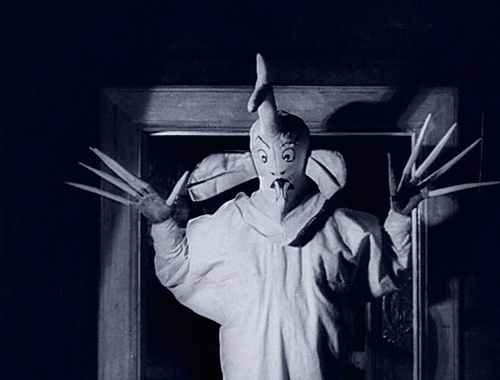
Prästänkan (The Parson's Widow) , Carl Theodor Dreyer , 1920.
285 notes
·
View notes
Text
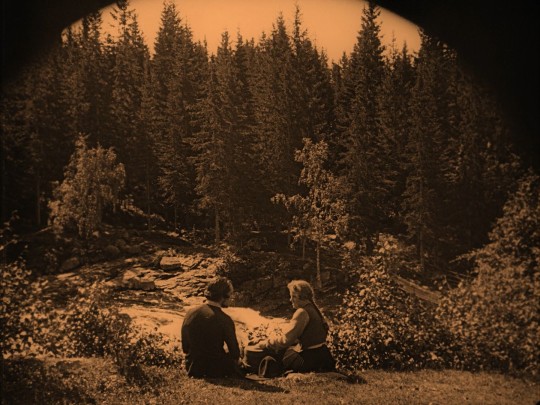
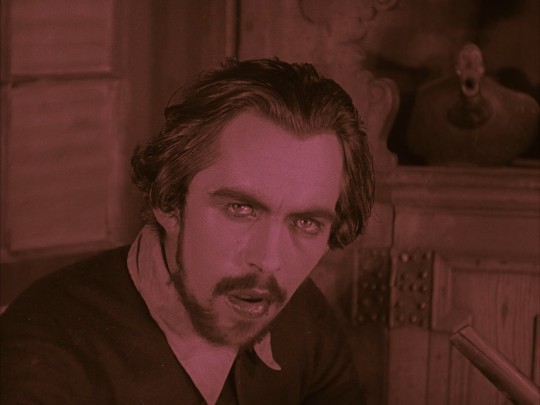

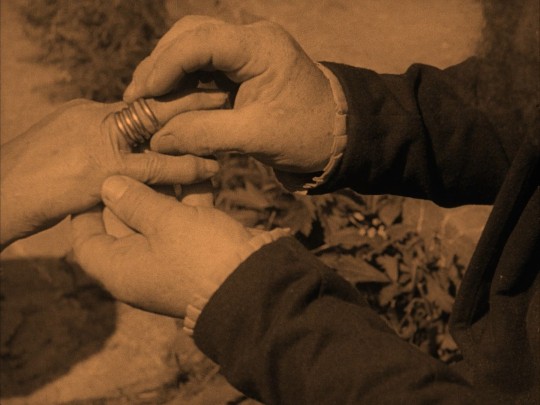
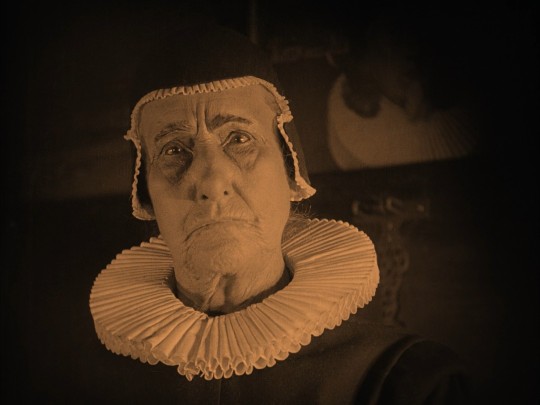


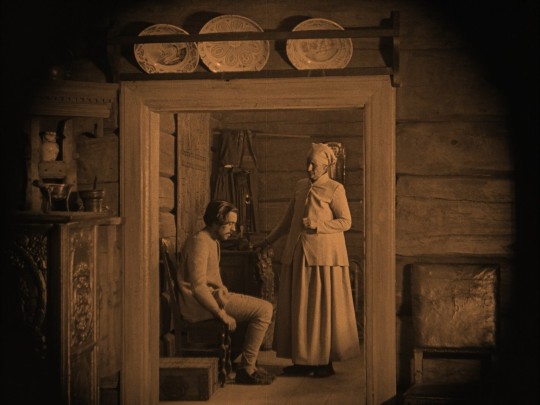

Prästänkan (Carl Theodor Dreyer, 1920)
#Prästänkan#carl theodor dreyer#Hildur Carlberg#Einar Röd#The Parson's Widow#1920#silent cinema#silent film#silent movies#silent#swedish cinema#swedish movie#swedish film#17th century
9 notes
·
View notes
Text
To Know You…
Pairing: Benedict Bridgerton x fem!reader
Summary: Benedict knows you better than anyone. But does he know himself well enough to know what he truly wants?

Warnings: none really… fluffy fluff. Childhood friends, class differences, marriage mart shenanigans, dancing, marriage proposals, Benedict being adorable while also a complete dumbass, unrequited to requited love, love confessions.
Word Count: 10.4k (yeah, it's a long one, folks)
Authors Note: this is a request fill for @curlsincriminology (ask HERE) about Benedict showing you all the wonderful things he sees in you, but will he figure out his own feelings before it's too late? Thanks to the complete trooper @colettebronte for beta reading this monster one-shot. Enjoy <3

I: To Know You….
“I would rather not, Miss y/l/n,” the young man clips, walking away from you at a brusque pace.
You sigh and look down at your feet. Mrs Parsons will be so very disappointed, is all you can think.
—
Benedict may not have heard the words spoken, but even from his vantage point at the other end of the ballroom, he could see the disdainful way the young man uttered his parting words to you. It makes anger flare hot in his chest, his fist forming reflexively at his side.
He watches as you look down, shoulders hunching, folding in on yourself physically, as if the rejection for a dance has manifested in a body blow. He feels a pang in his gut—of sympathy, indignance on your behalf and mainly at the injustice of it all. To him, you are a wonderful, intelligent, caring person worthy of a good match. Still, the circumstances of your upbringing seem to stymie your attempts to join so-called ‘polite’ society at every turn…
—
You look up with a defeated mien until your eyes land on one person who has always been able to ameliorate any of your more morose moods—Benedict Bridgerton. Instantly, you feel lighter. You give him a polite nod across the crowded room, and, to your delight, he returns it, a hint of a sympathetic smile tugging at his lips. It is just so very characteristic of him to offer silent support, to understand, from witnessing a moment of interaction, precisely what you are feeling. A large part of you feels so wistful that there is no other man quite as nice as him. Suddenly, your overwhelming need is to leave this stuffy ballroom and catch some air.
You grew up under the tutelage of the kindly doctor’s widow, Mrs Parsons, whose house is not far from the vast Bridgerton estate in Kent. The naturally born daughter of nobody quite knows whom, you were taken in as her ward when you were abandoned upon her doorstep at a mere two years old. Her reputation for kindness towards young waifs and strays is likely why you were left there. It is an event you were too young to recall, so all you have known your whole life is her generosity and kindness, raising you as if her own.
And now that you are of age, she takes you to events around Kent in the hopes of securing you a respectable husband, the most prestigious being tonight’s Hearts and Flowers Ball at Aubrey Hall. The Bridgertons have always been gracious enough to invite local families, those without the means to partake in the London season, to events at their country estate—a kindness that allows for your attendance tonight. It’s just such a pity that the one bachelor Mrs Parsons was so very keen for you to meet, one Mr Reeves, just rebuffed you so thoroughly.
You glance down at the remaining empty slots on the dance card tied to your wrist and sigh again. Now that you are out on the terrace in the fresh evening air, the light breeze is at least a partial balm, allowing you to recover from the sting of rejection away from the hubbub of the ballroom.
“I will never understand how the men of this county can consider themselves anything approaching mannered.”
You would know that refined voice anywhere. It haunts your dreams. Just the sound of it making your ribs tighten. You turn to see Benedict sauntering towards you, two drinks in hand, that sympathetic smile still in place.
“You are far better off without such rudeness,” he adds dryly as he pulls up beside you, arching an eyebrow for your entertainment.
“You are far too kind, Mr Bridgerton,” you answer, taking the glass he offers with a meek smile, trying not to let your ardent admiration for him be too evident.
“Mr Bridgerton?!?” he scoffs, “What happened to BenBen?” he teases gently, recalling your childhood name for him when you were a mere four and he was nine.
“We are at a formal event; I should address you as such, should I not?” you reply playfully, a warmth spreading inside as it always does when you get the chance to have a witty, convivial exchange with him.
By gosh, if there is one man to whom you would pledge yourself without hesitation, it is him. But, of course, he is the second son of an illustrious family. To think you would have any chance to win his heart would be as likely as a future king to marry a commoner. Still, you can dream…
“At least call me Benedict, Skylark,” he winks over his wine glass as he takes a sip, butterflies erupting in your tummy at the affectionate nickname he has used since you were small; you have to avert your eyes to avoid blushing deeply.
Just as he goes to speak again, his brother, the Viscount, materialises at his side. Looking to all intents and purposes as if he is trying to escape the ball as much as you are.
“Mother is best avoided tonight, brother,” Anthony warns sagely, taking a large gulp of his champagne. “She is under the erroneous impression I am suddenly in want of a wife.”
You can't stop the giggle that bubbles up from within at his wry observation of his predicament.
“Hello, y/n,” he greets warmly, just noticing you are also there, his face morphing into a youthful, playful grin. If Benedict is the husband you have always dreamed of, Anthony is the elder brother you have always yearned for. In fact, that is always how he has treated you, akin to Eloise and Daphne, who you grew up playing with, being of similar age.
“Hello, Anthony,” you chime back. “How was the hunt earlier? Did the infamous Bridgerton brothers kill another prized stag?” you inquire, keen to engage both of them for as long as they will entertain you. Just being around them always lifts your spirits to no end.
—
Benedict observes you as you listen intently to Anthony’s recounting of the hunt earlier that day, impressed by your resilience. He has no doubts any other woman would feign an attack of the vapours had a man rejected her so harshly. But here you are, politely listening to his brother’s boasting, even though he can tell you are hurting inside.
Perhaps it helps that your snub went primarily unnoticed. You are unknown to the Ton; any witnesses likely dismissing it as the business of ‘country folk’ unworthy of note. Which, frankly, he could scoff at, seeing as he holds you in higher regard than all of the other attendees combined.
“How about you?” Anthony ends his story with a question to you, interrupting Benedict’s train of thought. “How has your experience been at our fine event this evening?”
“Oh, the house is splendidly decorated and the music wonderful,” you obfuscate behind flattery. Anthony appears to buy it, but Benedict sees behind your facade, the flame behind your usually bright gaze dimming a little, making something ache in his gut to see it.
Damn that idiot for ruining your evening! This just won’t do…
—
You can feel Benedict’s eyes upon you as you respond abstractly to Anthony.
“Y/n here is too polite to say it, but she was treated harshly by that young Reeves chap from Tenterden,” Benedict edifies as you bow your head, embarrassed. “Let’s be sure to rescind his invitation to future events, brother,” he appends with a surly tone.
“Duly noted,” Anthony nods sincerely, a brush of confusion flitting over his face regarding his brother's vehemence.
“No, there is no need…” you begin to protest weakly but halt mid-sentence under the intensity of Benedict’s gaze.
“I bore witness. Believe me, He shall not darken our door again,” he states firmly.
It appears the matter is very much decided, and you don’t want to put up much of a fight, seeing as it ultimately benefits you. You do, however, want to bathe in the warm glow inside whenever Benedict defends you. It's wonderful to have someone looking out for you, especially one so handsome and kind.
—
Two days later, you are taking afternoon tea with Mrs Parsons at the local tea shop when Benedict breezes in, looking so majestic dressed in Bridgerton blues that you grind to a halt. Luckily, he has not seen you as he makes a beeline for the counter.
“‘Tis rude to stare, my dear,” Mrs Parsons lectures sotto voce, nodding to your teacup, frozen in mid-air.
You shake your head a touch and place said item back in your saucer as she turns briefly to look at what or who caught your attention. Then she reaches out, her lace-gloved hand gently patting yours.
“It would be prudent to set your sights a little more realistic…” she advises with a sympathetic air. “Not that I fault your choice,” she adds, so quietly at first you're not sure you heard her correctly, but there is a tiny playful smirk tugging at the corner of her lips. Your mouth falls open fractionally, and you stare as she shrugs. “I may be old, my dear, but I am not blind.”
Well, I never, Mrs Parsons!
As you take a bite of food, Benedict twists around from speaking to the proprietor, and he sees you. There’s a jolt down your spine as he breaks into a huge smile that claims his whole face. And you almost choke on scone crumbs as he makes a beeline over to you rather than the exit.
“Good afternoon, Miss y/l/n, Mrs Parsons!” he greets effusively. “Would it be terribly impolite to ask to join you briefly?”
Mrs Parsons' face is a picture of surprise. “Not at all; the pleasure is ours, Mr Bridgerton,” she responds affably, gesturing to the spare chair at your small round table.
As Benedict sits, Mrs Parsons shoots you an incredulous look. It's your turn to shrug fractionally.
“Mrs Parsons, I feel it necessary to tell you Mr Reeves was excessively rude to Miss y/l/n here at the ball, and I wanted to assure you that he will not be welcome at Aubrey Hall again,” he divulges sincerely.
Mrs Parsons looks taken aback and turns to you. “Why did you not tell me, my dear?”
“I-I did not think it necessary…” you twist your mouth into a bashful pout, biting your lip.
“Mr Bridgerton, thank you for bringing this to my attention, and I thank you for your generous offer, but that sort of action does not seem warranted,” she replies accommodatingly.
“That is what I said…”
“That is what she said…”
You and Benedict speak in unison at the exact same moment, and your eyes ping to each other, both laughing then bowing your heads immediately. You know your cheeks are flushed.
—
Benedict loves the look in your eye sometimes. That spirited sparkle with glowing cheeks. In his opinion, that is the only look you should ever wear; no one, especially one as unworthy as Mr Reeves, should be allowed to rob you of it. He feels a strong compulsion to do everything in his power to keep you looking like that—carefree, happy, stunning. It’s what motivates his subsequent words.
“If it is not considered too impudent for me to do so, I have a suggestion for Miss y/l/n’s introduction into society,” Benedict offers sincerely. “I believe you should be able to find her an excellent, worthy match by casting a wider net.”
“What are you proposing, Mr Bridgerton?” Mrs Parsons inquiries, almost warily.
“That Miss y/l/n come to London and partake in the remainder of the season as a guest of my family. My mother seems to think it an excellent idea, and I know my younger sister Eloise is already a good friend. I do not see why they could not attend events together,” he shrugs genially.
Mrs Parsons's face is a picture again. “You have already spoken to the Dowager Viscountess of this matter?” she checks, unable to modulate the astonishment in her tone.
“Of course,” he confirms with a nod. “I made such a suggestion this morning when your names came up. She heartily concurs. Miss y/l/n here is too bright and good of a person to have her marital choice limited by geography or circumstance.”
His eyes fall on you, and his heart gallops at the searing look you are giving him.
—
You don’t even try to temper your doe-eyed expression as you look upon Benedict, him extolling your virtues to the audience of the tea room.
Even distracted by all the wondrous things he has to say, you can detect the noise level on the surrounding tables has reduced; everyone in town always keen to eavesdrop on a Bridgerton conversation. Especially one that contains such noteworthy gossip as a local young lady being invited to the London season at the family’s behest.
“My dear, I trust that Lady Bridgerton will look after you well,” Mrs Parsons professes. “I have no objections should you desire to seize this opportunity.” Her tone pointed, very much encouraging you to do so.
“That would be just wonderful, Mr Bridgerton,” you exhale with a grateful smile. “I cannot thank you enough for even thinking to raise such a petition.”
“Think nothing of it, Miss y/l/n,” he smiles, standing up and giving you both a brief, shallow bow. “I shall see you anon, no doubt.”
And with that, he sweeps out of the tearoom, your eye line tracking his concave outline through the curved glass as he rounds the corner out of sight.
“Well, well,” Mrs Parsons puffs out her cheeks. “I am not sure what you did to inspire such actions in a gentleman. But bravo, my dear, bravo,” she holds her teacup aloft in a toast.
You are a jumble of emotions and could not even begin to answer Mrs Parsons about what you could possibly have done. Mostly, you are just elated by the prospect of the chance to attend the whirl of the London season, even if there is also a small pang of regret that Benedict is so keen to see you matched.
II: …Is To Love You
The following Tuesday, as your carriage pulls up outside the grandeur of Bridgerton House, you have nothing but butterflies. And as Lady Bridgerton - Violet as she insists you now call her - and her lady’s maid show you to your charming guest room, you cannot temper your excitement.
“Get yourself freshened up, my dear. There is a soiree this evening at the Queen’s new residence no less, and there is no time like the present to begin your introductions,” the dowager viscountess warmly counsels.
You nod your thank yous, and after they take their leave, you twirl excitedly around the room, taking in the elegant furnishings and airy sunlight flooding in. You pull up in front of a large sash window and are delighted to see bounteous gardens beneath. The rear of the property is very much an oasis of calm in the heart of the city. But one sight in particular draws your eye: a majestic oak with two swings attached to a stately arm. It looks like a place of refuge, and you feel oddly compelled to take a seat there.
Three hours later, walking into the palatial Buckingham House, you are in a different world from the one you know in Kent. Candlelit crystal chandeliers glint like towering clusters of jewels, spraying thousands of shards of light around the room. Every railing is bedecked in hundreds of drooping flower garlands, and the walls groan with enormous portraits of royalty. The mellifluous strains of a chamber orchestra fill the air. Your grip on Eloise’s arm is tight as you try not to look agog at all the opulence surrounding you.
“And I thought Aubrey Hall was grand,” you murmur quietly, and she just guffaws.
—
Benedict arrives late to the soiree from his bachelor lodgings, bustling in as stealthily as possible, knowing he will likely catch his mother’s ire for his tardiness.
But then he sees a sight that makes him temporarily stop dead in his tracks. There, hanging on to his little sister, surveying the room utterly lost in reverie at its grandeur—is you. He has not seen you dressed up as you are now, made over with the full attention of the Bridgerton staff. And he isn't afraid to admit to himself, at least, that it catches his breath. How they have applied cosmetics and styled your hair, emphasising your already evident beauty. And the dress they have chosen… well, he is almost ashamed of the heat pooling low in his gut; he has never seen you in such tailored, refined silks.
Whosoever marries you shall be quite the luckiest man indeed.
He doesn't miss the way you inhale sharply when your eyes finally land on him, his chest swelling slightly with pride as your lips part in surprise before breaking into that winning smile which always seems to brighten every room, tonight being no exception.
As he pulls up to the family, he hears his mother opining to you about the men attending the ball.
“Y/n, I would like to introduce you to Lord Shelton; he is a fine young man with many interests, and he has a lovely estate near Hove,” his mother recounts as you listen intently.
“Oh god, no,” Benedict immediately intervenes, “Shelton has amassed significant debt at the Pudding Lane gaming hell…”
Violet looks up surprised, then raises an eyebrow. “Pray tell dear son, how do you have knowledge of such? Benedict Bridgerton, you had better not be frequenting the hells of the East End,” she threatens quietly, in that stern maternal manner that has any grown man quaking in their polished shoes.
“No, of course not, mother,” he bristles, his eyes cutting briefly to you, not wanting you to think such things of him. “It is an open secret at Whites’, and why he is currently banned from the card room there.”
—
You cannot tear your eyes off Benedict as his mother side-eyes him.
Violet hums sceptically before declaring. “Well, not to worry, there are plenty of other options available for Miss y/l/n…” She steers your attention towards another crowd of young men, all talking and sipping champagne. “Baron Corning, Lord Jennings, Viscount Tewkesbury,” she recounts, nodding subtly to each one. “Any would make a fine addition to your dance card, my dear.”
“We can do much better than any of them,” Benedict chides.
You are slightly taken aback at how very much he sounds like Anthony tonight; apparently very invested in curating who you should dance with. The problem is, with each additional suggestion his mother makes to you, he roundly dismisses them out of hand.
Is no one in attendance up to his standard?
“Benedict, dear, a word?” Violet states pointedly after a third round of his withering opinions. “Get yourself another lemonade,” she smiles at you, patting your hand before looping her arm in her son’s and dragging him away.
—
His mother’s arm is surprisingly strong when she needs it to be.
“Darling, may I remind you, while Miss Y/l/n is indeed a wonderful person, I do not think we can afford to be too picky for her prospects. Her background is rather… unestablished,” Violet points out diplomatically as soon as you are out of earshot.
“We can do better than braggards, bores and philanderers,” Benedict shoots back, raising a pointed eyebrow.
She looks up at him and sighs. “Well, that is true.”
“As I thought, mother,” he winks as she affectionately swats his forearm. “Why not benefit from my knowledge? In fact, perhaps it is prudent I assist in your search for a suitor.”
“Oh, is it now?” Her tone suddenly filled with intrigue, her face entirely too scrutinising for his liking. “And does not my second son wish to join their ranks?” She adds entirely unsubtly.
“I have no time for romance; I have my art. I am most preoccupied.” He waves a dismissive hand, but even he knows his answer is tellingly brusque.
“And yet, you do not seem too busy to assist with the search, dear…” she points out archly.
Benedict has no response to that.
—
The day after the grand ball, you are sat in the dappled shade in the gardens of Bridgerton House, attempting needlework. It's never been your strength, frankly. You would much rather be allowed to partake in more physical pursuits, like archery or fencing, a want to burn off nervous energy as you await the arrival of any suitors. You did end up dancing with a couple of gentlemen, both of whom were…. fine… in your estimation.
After messing up yet another stitch, you throw down the embroidery hoop and emit a deep sigh when a familiar chuckle rings out behind you.
“Not your favourite pastime?” Benedict correctly guesses.
“You can say that again,” you grumble, twisting to smile at him, a little frisson in your belly at his mere presence, alone as you are.
He rounds to take a seat opposite you, across the table.
“So let me guess,” his face charmingly skewed into a thoughtful mien. “You would prefer to be doing something, hmmmm, more athletic?”
You giggle and cast your eyes downwards briefly, abashed he seems to know you so well. “Correct again.”
“I remember you being a crack shot in archery,” he smiles nostalgically before continuing with genuine curiosity. “Why did you not continue it?”
“I was informed ‘tis unbecoming for a lady,” you rue, the mental image of Mrs Parsons deeming such things ‘unladylike’ flitting through your mind.
He scoffs. “Since when did fearsome little Skylark care one jot for societal expectations?” he teases gently, with a wink, as again he invokes the nickname he bestowed upon you a long time hence.
You smile briefly before you become more sanguine. “Since I have been informed I must find a husband…” you sigh.
He frowns a touch. “Any man would be lucky to have a wife who can keep him company on the archery field. I know I, for one, would greatly appreciate a spouse with whom I could share such a pastime.”
A bittersweet twinge in your gut that one day he will indeed be married to some deserving, no doubt elegant, lady.
“I would venture that you are not like most gentlemen in that regard…”
“Perhaps not,” he agrees, looking thoughtful, “but then you are not like most ladies, Skylark.”
“I am not a lady…” your counterpoint softly-spoken, almost ashamed.
“You are more lady than any other member of the Ton,” he asserts, his gaze suddenly intense, as if he is willing you to believe his point. “And you should be free to pursue any pastime you wish.”
You say nothing, just smile wanly, wishing you could believe it was true.
—
How you constantly doubt yourself causes a little stab behind Benedict’s ribs. A sudden burning need to prove that you should do as you please. He slaps his thighs and stands up swiftly.
“In fact, I am going to go set up the archery targets right now,” he nods decisively, making a beeline for the far corner of the garden where he knows the targets are kept, hoping you will follow.
“Coming?” he calls, twisting to look back at you. “I won't tell anyone…” he adds with a conspiratorial wink, seeing from the involuntary bounce of your leg how much you wish to join in.
He cannot help the smile that engulfs his face as you jump to your feet with a mischievous giggle. Nor can he help deliberately aiming badly, letting you roundly defeat him at target practice, basking in the victorious glint in your eye as you tease him gently for losing.
He also pretends not to notice his mother watching from a high window, her expression riveted and so very telling.
—
Later that day, you are reading quietly with Eloise when Violet sweeps into the drawing room with her lady's maid.
“Y/n, Sir Denton is here to see you,” she smiles brightly.
“Oh, I…” you stutter, sitting upright, surprised.
“I can send him away, Miss?” The maid offers, intuiting your disquiet.
“No, no, it is fine… I am just surprised, that is all. ‘Tis almost 4pm. I was not expecting that anyone would be calling, given the late hour.”
Benedict suddenly materialises in the doorway. As ever, there’s that trademark flutter in your chest.
“Any reason Denton is lingering in the hallway?” he inquires airily, grabbing a teacup and pouring himself some.
“He is here for y/n,” Violet breezes as his eyes cut to you, a wave of irritation seeming to cloud his face.
“Well, we should dismiss him,” Benedict sniffs, pausing in his action, his face souring.
“Why?” Violet frowns.
“I had a chance to look into his past since I acquiesced to his dance with y/n last night…”
“Acquiesced?!” Violet scoffs, but Benedict ignores her interjection, save for a curt eyebrow raise.
“I have subsequently discovered he has vastly overstated his assets,” Benedict bristles imperiously.
“Who woke up and made you Anthony?” Eloise pipes up witheringly.
Benedict shoots her a look of irritation. “Anthony has deputised me to run family matters while he is away on business this week, sister,” he reminds pointedly.
“Yes, but you did not have to adopt his personality as well,” Eloise shoots back, disgust evident on her face.
“I take finding y/n here, a suitable match, seriously,” he volleys. “Do you wish to see your good friend married to someone unworthy of her?”
“Well, no…”
“Then kindly permit me to handle matters,” Benedict orders with finality, uncharacteristically forthright in his opinions.
“I do not wish to see her married at all…” Eloise mutters under her breath as he stalks away to dispatch Denton before anyone can argue.
You just sit there mildly dumbfounded, unsure what to make of it all.
—
The following evening, you are attending a music recital with the Bridgertons; Benedict is notably absent, which makes you a touch melancholic in a way you don’t want to dwell on.
However, the evening turns for the better while you are taking refreshments at the interval. A friendly-faced young man strikes up a conversation with you after an introduction from Violet.
“Are you enjoying the music tonight, Miss y/l/n?” he asks genially.
“It is very nice, Lord Glassborough,” you offer politely, trying to stifle your slight boredom. You enjoy music, but a two-hour concert is a little too much for you. You much prefer a short set of songs as they play at balls.
“I find it rather dull myself,” he opines quietly, leaning in. “I much prefer a lively song one may dance to.”
You know your face is a picture of surprise that his opinion is an exact mirror of your own.
“Have I offended you so?” he checks, looking mildly contrite.
“Not at all, my lord. I was actually just thinking the same myself,” you chuckle quietly.
He looks inordinately pleased and breaks into a friendly, toothy grin. He seems like a nice, agreeable sort. A pleasant, if not particularly handsome, face. Over his shoulder, you see Violet looking inordinately pleased you appear to be getting on so well.
—
“I am not sure I can do this...” you sigh as Ms West genially taps the metronome.
“You can, dear; just remember your finger placement,” she encourages as your fingers fall to the cool ivory keys.
And so you begin again. Attempting to master this tricky piece, your eyes tracing the lines of music as you play the pianoforte. Violet is so keen for you to brush up on your skills, given Lord Glassborough’s interest in you yesterday. You could not find an adequate excuse fast enough, and so here you are, in a slightly reluctant music lesson, trying your best to recall how Mrs Parsons taught you to play a few years ago.
“Men do so appreciate a lady who can entertain them with exquisite music,” Ms West nods approvingly as you play.
Mostly, you are relieved when you make it to the end with no mistakes, at least none glaringly obvious.
“I much prefer to sing…” you admit tacitly as Ms West shuffles the sheet music.
She looks at you surprised, then shoos you from the piano stool. “Sing for me then, my dear…” taking a seat and beginning the opening bars to a song that, fortunately, you know well.
You begin to sing along, growing more confident with every note, allowing yourself to get lost in the words, the story of a lady awaiting her true love.
“Exceptional!” she peals delightedly over the sound, and you feel bolstered to continue, her playing the perfect accompaniment.
—
Benedict stops short as soon as he enters the house. The most lilting, beautiful sound echoing gently down the marble hall.
“Who is that Jenkins?” he asks of the butler who takes his coat.
“I believe it is Miss y/l/n, sir.”
He draws inexorably closer, finding himself watching you through the crack in the doorway, listening to you sing a touching tale of love that sounds so hauntingly hypnotic in your mellifluous tones. Your eyes are closed, and you sway to the melody, lost in reverie, in the narrative you weave.
The piano stops abruptly.
“Can we help you, sir?” an elder lady calls crisply.
Benedict realises the door has crept open slightly before him, enough for him to be seen by your music teacher. He watches as you swing around and look horrified that you may have an audience. It makes him take a resolute step forward into the room.
“Do you need us to desist? Is it perhaps too loud?” the lady checks deferentially, likely assuming him to be the head of the household.
“No!” His reply is a touch too forceful. “Please continue,” he modifies. “I was merely drawn by the splendid sound I heard. I am not sure I have ever heard such a wondrous voice,” he adds, keeping his gaze steadfastly upon the lady, not able to look you in the eye as he confesses as such.
—
You are mortified when you realise Benedict heard you singing; you have always managed to keep it private, until now at least. But now your heart is suddenly pounding at his extolling words.
“She does indeed have a most excellent voice,” Ms West concurs with his sentiment, looking at you expectantly as Benedict walks further into the room, his face with the same hopeful expression.
“I am not sure I can…” you stumble, nervous for an audience, most especially him; his is the opinion that would matter to you the most—you would be crestfallen should he not like it.
“Sing more for me, please, Skylark?” His ask is gentle, beseeching as if it were just the two of you alone.
“Skylark?” Ms West sounds enchanted.
“My childhood nickname for Miss y/l/n,” Benedict explains as he takes a seat.
“Skylarks have a wonderful song,” she sighs wistfully.
“Indeed,” Benedict chimes, his eyes still upon you. “I never knew how appropriate it was until this very moment.”
Something warm cracks in your chest at his sweet words, making you courageous. At least enough to nod when Ms West looks to you again from the piano. And so you restart the song for your special audience, heart in your mouth. The words coming easily to you, an extra layer of meaning he will never know as you sing words of unrequited devotion, looking to him in your braver moments. His face is enrapt, leaning forward, his eyes soft and expressive.
As you reach a high note at the end of the song, holding it, Benedict bursts into applause, jumping up from his seat and taking you by surprise, grabbing your gloved hands in his.
“You should always be singing Skylark…” he pronounces. “Truly beautiful. Please promise me, no matter what happens, that you will always, always sing…”
You duck your head briefly, unsure how to deal with his effusive praise. Ms West’s face is a picture as you stand there, your hands still trapped in his, feeling a tingle where the warmth of his skin seeps through the layers to yours.
“I-I-I promise,” you reply meekly, a touch dazed as you raise your eyes again to meet his, the intensity making your lungs restrict.
“Thank you.”
Two words have never sounded so sincere or loaded with significance.
III: … And I Do.
A few days later, it is the Trowbridge Ball, a decadent affair that is usually the most talked about of the season, apparently. You share a carriage ride there with Benedict and Eloise, trying your best not to stare at him—so handsomely dressed in a white cravat and black velvet cropped jacket that clings to his tapered shape. But mostly, you fail. Your skin flushes hot the more you look at him. You could swear that his gaze strays to you, too, subtly sweeping the fine teal silk Madam Delacroix has expertly tailored for you.
“You look beautiful this evening, ladies,” he offers politely to both you and Eloise.
“What do you want?” Eloise cuts across your reply, narrowing her eyes at her older brother, instantly suspicious of his flattery.
“Can I not compliment without an ulterior motive?” he frowns, their usual sibling dynamic emerging.
“Not usually,” Eloise sniffs, with another suspicious glance, before looking out the carriage window.
You take the opportunity to mumble your thanks to him. His responding smile warms your entire being, his hazy eyes lingering in a way that makes your skin prickle. And when he offers a chivalrous hand to assist you down from the carriage, you could swear his hand lingers upon yours a few seconds longer than is necessary.
Around an hour later, as you go to partake in a refreshment, a sneering Lady Cowper utters something cruel under her breath as you pass, her sour-looking daughter smirking beside her. You do not hear all of the words, but you do not need to. One sideways glance tells you all that you need to know. It seems so unnecessarily cruel, never having even exchanged so much as a word with you, but even as you feel a lump in your throat, their attention is already elsewhere.
“Ah! Mr Briddgerton,” her entire demeanour changing to oleaginous charm, “my daughter looks particularly stunning tonight, does she not? I do believe you should secure a place upon her dance card before there are none left!”
You watch Benedict blanch at the very words.
“I do not dance, Lady Cowper, but I bid you ladies a good evening,” he responds, polite but firm.
You try your hardest not to giggle at the disdained look on their faces as he sweeps past them, and you feel light as air as, instead, he draws up to you and winks.
“That woman does not realise she is doing her daughter’s prospects more harm than good with her brashness,” he comments dryly as he grabs a glass of champagne from the stand next to you.
“I am not so sure the daughter would do much better without her; she seems perpetually furious about her own hairstyle,” you opine sardonically, making Benedict snort loudly into his champagne glass. A lightness fizzles in your being as he shoots you a look of unmistakable admiration for that remark.
“I daresay you are a much better dancer than her,” he contends, not breaking eye contact, placing aside his drink before leaning in and continuing in a hushed voice. “Perhaps you would do me the honour of a dance, Skylark, to confirm my suspicion?”
There is a vault in your chest as he employs your private nickname in public and, not only that, is offering you a dance when, just a moment ago, he declared publicly that he would not.
You can only nod, heart hammering, as he breaks out into the most handsome smile, offering you his arm and leading you to the centre of the room as you hear a ripple go through the nearby crowd. Apparently the sight of one Benedict Bridgerton taking to the dancefloor is a rare occasion indeed.
—
As he takes your gloved hand in his and curls an arm around your shoulder, he realises this was perhaps a mistake. An impromptu offer, the hollow thrill of petty revenge for the insult he observed the Cowpers sling at you. But now he realises it has rather backfired upon him.
He cares not a jot for the gossiping, people nodding and pointing to you both as you begin to dance. No, the problem is much more concerning than that.
It is how discombobulated he feels having you in his arms.
How your body seems to fit and move perfectly with his. How, when you dare to look up at him, his mouth goes a little dry. He has never truly noticed how striking your eyes are until seeing them this close. Indeed, the evident beauty of your face, the way you seem to glow from within, more tonight than ever. It makes his chest - and somewhere else on his body - feel entirely too tight.
—
Nothing could have prepared you for this.
The feeling of literally being swept off your feet. With Benedict's handsome face smiling down upon you as you seem to float around the dancefloor.
Surely, this is what dreams are made of?
You know it is a flight of fancy, but it seems as though the floor beneath your feet is a shower of diamonds rather than candlelight refracted through chandeliers. The warmth and strength of Benedict’s embrace caged around you, respectful but so close it makes your lungs feel too small to gasp the air you need to keep moving. But you never want to stop. A whirlwind of sensation as you twirl, carried away by the music, the man, the moment.
“Thank you, Benedict,” you breathe, knowing you are likely looking up at him far too adoringly but unable to mask it, a burning need for him to know how grateful you are for this dance, not even noting your over-familial use of his first name at a society event.
His eyes flash and you could swear they dilate a fraction before you must turn your back to him, following the steps.
“I was right,” he rumbles cryptically from behind you now, his large hands wrapped around yours as you hold them aloft together, following the moves of the dance. “It is indeed an honour to dance with you.”
Your belly flares as you turn in unison and realise that you are now dancing right in front of Cressida, her expression murderous. It makes you bolder than you have ever been, tilting your head sideways a fraction so your cheek almost brushes Benedict’s, fuelled by the envy you feel seething from within her.
You could swear he sighs ‘Skylark’ as his hot breath tickles your ear, your chest pounding, a flavour in the air you can taste, a powerful stirring low in your belly.
—
Benedict knows this is a dangerous path and yet is powerless to do anything but walk it. Breathing your nickname into your hair as he inhales your scent, heightened by the movement of your dancing. A light, sweet floral perfume but underneath the smell of you, familiar from many years of friendship but altered now, more decadent, an undercurrent of tart berries that thrills and stirs deep within him. Even while knowing his ever-vigilant mother is watching, an inscrutable expression upon her face.
He is almost grateful when the music ends before he does something foolish. But then you are staring up into his face, all doe-eyed expectant beauty and his tongue feels unexpectedly tied. He is almost grateful when an interrupting hand wraps around his shoulder.
—
You watch Will Mondrich whisper in Benedict’s ear, and before you know it, he is offering apologies to you with a shallow, polite bow before hurrying away. Coming back to reality with a bump, you drift awkwardly from the dance floor, feeling judgy eyes upon you, suddenly flooded with concern your behaviour was entirely too wanton.
Before your thoughts can spiral too far, however, someone materialises at your side.
“I do so hope your dance card is not full tonight, Miss y/l/n,” a newly-familiar, chipper voice cut in.
“Lord Glassborough,” you breathe; your relief at seeing his cordial face is palpable. “I am available to dance right now,” you smile politely, taking his proffered arm and letting him lead you back out to the spot you and Benedict had just vacated.
As the music begins and you move together, the difference is… noticeable. Gone is the frisson over your limbs, that excitement as if your skin could vibrate off your bones. Instead you feel comforted, almost a brotherly presence as he leads you in the dance. He is technically proficient, but it feels lacking—that tension, that heat burning in the space between you. It makes you yearn for Benedict even though he was just with you. It makes your stomach settle with a leaden weight you realise you will have to settle for less than what you truly desire.
Still distracted by your mental comparison, you absently acquiesce to his suggestion to take some air upon the terrace as the dance ends. You sense Violet, ever the vigilant chaperone, follow as he leads you into the cooler air outside.
“Miss y/l/n…,” Lord Glassborough begins cautiously. You sense a nervousness in his being, pulling your full focus to him. “I think us most compatible, would you not agree?”
“We make most excellent friends, indeed, Lord Glassborough,” you hedge, not wanting to appear overzealous.
“And friendship is the most appropriate foundation to build something more… tender,” he argues with a smile. “I do believe I could offer you a most agreeable life.”
There is a strange twinge in your chest as suddenly, you realise what this is. The moment everyone, except perhaps yourself, has been awaiting all season.
“I would be honoured if you would consent to be my wife, Miss y/l/n,” he humbly offers a sincere kindness shining in his eyes.
And there it is. An offer of marriage from a perfectly nice, respectable gentleman done in an appropriate manner.
To one side, you see Violet clutch a hand over her chest, face delighted, even as you form fists within your delicate gloves, wishing this moment were not happening so soon after a truly breathtaking dance with the man of your dreams. Who is not the same man as the one before you, nervously shuffling from foot to foot, awaiting your reply.
“I am honoured, Lord Glassborough,” you answer cautiously, bowing your head demurely. “This is a big decision to make. Please allow me time to give you my proper, considered answer?”
“Of course,” he bows chivalrously, his accommodating nature making this moment all the more bittersweet. He is indeed a lovely man.
He is just not the one you want with every fibre of your being.
—
That night, you cannot sleep. Knowing you have the most significant decision of your life to make. So, in the small hours, you find yourself drifting to the deserted kitchen of Bridgerton House to do what you do best when you need to think calmly—baking.
An activity you have grown up doing with Mrs Parsons. Many hours spent happily with flour dusting your hands, sun streaming into her grand but homely kitchen. A perhaps slightly maverick pastime for a lady of her social standing, with staff to do such things for her should she wish it, but so very enjoyable nonetheless.
Throwing a large, heavy baking apron over your nightdress and robe, you potter around, the flagstone of the basement floor cold underfoot, a grounding feeling that stops your mind from racing too much.
You have no idea how to respond to Glassborough’s proposal. On one hand, he is a seemingly nice man, certainly of a good family. You are sure he would be a perfectly acceptable husband, unlikely to be mean or untoward. It is just… a nagging voice is telling you to turn him down despite him being an imminently sensible choice, your heart wanting, well, the impossible. A man that excites you, not just a safe, practical option.
You are onto your second batch of lemon and rosemary biscuits when a voice makes you jump out of your skin.
“What on earth…?”
There in the doorway is Benedict, looking confounded to find you here. The very man who makes your heart skip, always. He is dressed the most casually you have ever seen him— also barefoot, in a white frilled shirt and dark trousers, brocade braces slung around his hips. You swear you may have to grab the bench before you to stay upright.
“Y/n! We have cooks you can call upon at any time should you need food!” he fusses, instantly concerned, moving to ring a bell on the wall.
“No! Please do not!” You exclaim, rushing to stop him, grabbing his sleeve in your haste. “I-I enjoy baking. It is relaxing; it helps me to think.”
His brow knits and his eyes flick down to your hold on his sleeve, a warm vein pulsing under your fingertips. You snatch your hand away quickly, a blush staining your cheeks, mumbling an apology as you scurry back to your biscuit-making.
“Alright,” he concedes slowly, still appearing confused. “When I saw the sconces lit from the rear stairwell, I assumed one of the staff was still down here.”
You find it bemusing that he seems at pains to justify why he might also be in the kitchen, especially to you, a guest. This is Bridgerton House, and he is a Bridgerton. He may go wherever he pleases, surely? And yet here he is, doing so.
“I was rather hoping for some hot cocoa,” he explains with that soft, crooked smile that always makes your heart flutter.
“Oh! Well, umm, I could make you some cocoa?” you look down, wiping your hands upon your apron and moving to do so.
—
That you would make such an offer, as if seeing yourself as unpaid help, spurs him into action.
“No, you certainly will not!” He decries, moving swiftly towards the larder before you can. “I am perfectly fine with some cold milk,” he assures, re-emerges with a bottle and pouring himself a glass, leaning back against the sink to take a sip.
Despite the lateness of the hour, he finds your heretofore secret pastime strangely fascinating. A lady who bakes. By choice. So he watches as you return to making your biscuit dough, entertained as you begin to beat the mixture quite furiously with a wooden spatula.
“Have those ingredients caused you some sort of personal offence….?” he jests lightly, nodding to the bowl.
He observes a flit of contrition across your face before you answer.
“I, umm, have a decision that I must make; baking helps me think,” you explain vaguely, then appear to rapidly change the subject. “I am, however, sure of one fact - some biscuits are a must to accompany milk. There is a completed batch over there.”
“Genius,” he opines with a wink, enthusiastically moving to grab one from the cooling rack you signalled to, delighting in the blush that darkens your cheeks. But he decides to push the topic you abruptly avoided. Concerned there could be a topic you are genuinely wrestling with. If his opinion on the matter can ameliorate your burdens, he would be most honoured to assist.
“What sort of decision must you make?” he inquires before temporarily losing the power of speech. There is an explosion of tart lemon and earthy herb on his tongue that melts into a buttery sweetness, utterly divine. “Lord alive, these are delicious!!!” he exclaims around the mouthful.
“Thank you,” you answer softly.
You are always so modest about your talents; it sometimes makes him want to grab your shoulders and shake you gently. To make you see what he does.
“To answer your question, it is a perplexing matter that needs serious consideration,” you explain, stopping short of detail. It appears you are not yet ready to share the news with him. Something about that makes him a touch sad, but he also does not want to pry if you are reluctant to divulge.
—
Benedict swallows the bite he has taken, and you find yourself staring at the movement of his throat as he does. Knowing one thing to be true—if it were his proposal, you would not even hesitate for a split second. That wistful thought makes you suddenly melancholic, and you sigh, pushing aside your mixing bowl, realising this may be an issue baking will not fix.
“I do so hate to see you doubt yourself, Skylark,” he offers quietly after a beat, mien so earnest. “Trust yourself. You will find the right answer for your dilemma; I am certain of it.”
He is so remarkably supportive that, ironically, you almost want to scream at him.
“I should leave you to your thoughts,” his tone is gentle, reluctant.
“Please, there is no need, Benedict,” you try to assure. “To be honest, in all of this world, yours is the company I enjoy the very most…”
That truth is out of your mouth before you can censor it.
You sheepishly glance over to be met by a surprised look on his face. He takes a few steps towards you, probably without realising it, and suddenly, he is very close, faint wisps of his woodsy, citrus cologne tickling your nose.
“And I, yours, Skylark…” he rumbles, his gaze falling to your lips.
Time seems to stop, and you feel pinned under glass, staring up into his handsome face as he breathes slightly ragged, your body rioting as he engulfs your senses, definitely too close to be considered gentlemanly, polite…
…But then, he takes a sharp inhale and steps back as if coming to his senses. He turns heel with a hastily muttered goodbye, and before you know it, he is gone. Leaving you bewildered, your thoughts scattered.
—
The following day, Benedict is idly reading the paper, partaking in a leisurely lunch of tea and cake, when his mother swans in, reeling off a set of instructions for her lady's maid.
“Oh, and lastly, do not forget, we should secure an appointment with the modiste, in case Miss y/l/n should know her answer today…” Violet concludes breezily as she takes a seat.
“Yet another ball we must suffer, mother?” Benedict drawls drily, folding down his paper and taking a hearty bite of zesty lemon drizzle.
She shoots her son an exasperated look before neatly smoothing a serviette into her lap as she is served her usual afternoon Earl Grey by the butler. “Miss y/l/n will be in need of a wedding dress, Benedict, dear.”
He spits an array of crumbs onto his newspaper, coughing in shock. “She will need what?!?” he wheezes, barely recovering.
“Lord Glassborough proposed to Miss y/l/n last night, my dear, at the ball. She has yet to give her answer, but I am certain she will. They are a fine match,” Violet declares, taking a sip of tea.
“Why did she not mention it to me?” he mutters, more to himself than anyone, his forehead creasing heavily in a frown as he swallows the rest of his mouthful.
“Why would she have?”
“We talked last night…” letting slip perhaps too much in his perplexed state, lost in his own tumbling thoughts.
“When last night? We returned from the ball very late,” a suspicious tone in his mother’s voice, belatedly releasing he should know better than to think aloud; she is sharp as a tack.
“I-I found Miss y/l/n baking last night… in the kitchen when I went for cocoa… she told me she had a dilemma she was wrestling with…” he admits, looking down at the paper, the words now a jumble before his eyes. “Mother do you think it is possible she will say yes??” Benedict's head snaps up, his heart suddenly pounding in his ears.
“She would be a fool not to,” Violet points out, raising a perfectly arched eyebrow at him. “Unless there was another, perhaps more wanted, proposal she could consider. Do you possibly know of one? Son?”
Even he can read between those lines.
“I-I am late,” he abruptly changes tack. “I promised to meet Anthony today to discuss the soil at Aubrey,” he bustles rapidly, standing and fleeing the room before he can allow his mother to see how much of a complete lie that is.
—
Benedict spends the afternoon at White’s, downing perhaps one too many whiskeys as he grills his fellow patrons upon the Glassborough family. Looking for any reason he can find to object to the betrothal while steadfastly refusing to examine why he feels so passionately about the subject. He also spends time checking the hefty tomes of Debrett’s the club holds.
He returns to Bridgerton House just as dusk settles in, the sky streaking red and pink as he enters.
“Where have you been, dear?” Violet asks as he rounds into the parlour.
“Researching,” he gruffs economically.
“What? Or rather whom?” Violet inquires, revealing she already has a firm idea of what she asks.
“I can find nothing wrong with him!”
Benedict paces, an energy emanating from his being as if he is rattled by that very fact.
“That is a good thing, is it not, son?” Violet reminds pointedly. “We want y/n married to a good gentleman…”
Benedict shoots her an exasperated look but relents. “I suppose…”
“Is not your reluctance perhaps for another reason, my dear?” Her question is gentle, if not particularly subtle.
He slumps into a wingback chair with a defeated sigh. “Go ahead. Say your piece, mother.”
“I have watched you, darling,” she begins gently, watching him tip his head back and screw his eyes shut. “I do not know exactly when, but your regard of Miss y/l/n has altered, and I am not the only one to observe it.”
Benedict's eyes fly open, and he tips his head down with a frown as his mother continues.
“Even Colin has marked a change in you. If you feel anything, my dear, then Miss y/l/n has the right to know. Before it is too late. The right to make an informed choice if you are bold enough to give her one. Son, I have only ever wanted my children’s happiness. And if your happiness lies somewhere that perhaps even you have not realised until now…. well then I encourage you to follow it. Follow your heart.”
Her impassioned speech suddenly makes the pieces of a jumbled jigsaw before his eyes arrange into a pattern, a way forward that is suddenly clear and sharply in focus.
It makes him leap to his feet, an urgency thronging in his being.
“Where is Miss y/l/n?” he almost barks.
“I do not know,” Violet confesses, “but I do know she has not yet seen or written to Lord Glassborough,” she adds.
“Good…” he rasps, headed determined out of the room to find you.
—
The verdant lush grass is cool between your toes as you curl them over, sighing heavily, the night now dark, a twinkle of silver among the navy sky, soon to be black. The swing under the big oak, a refuge you have sought many times since staying at Bridgerton House, feels a particularly poignant place to be tonight as an internal war rages within you, your decision swaying back and forth as much as the wooden seat you are perched upon, the rope digging into your cheekbone as you slump against it, flummoxed.
You know what your answer to Glassborough should be. Indeed, what it should have been from the moment he asked.
A resounding yes.
In every practical measure, this is the best possible outcome of your London season. A proposal from a thoroughly decent, acceptable gentleman, way above the station you were expecting, given your less than prestigious certainty of lineage.
And yet.
And yet.
There is a large part of you, your heart, that wants to turn down the proposal, foolhardy as that may be. Wanting to feel akin to what you felt as you danced with Benedict last night. You are not so foolish as to believe he would ever propose, but perhaps there is someone else out there for you that may evoke something similar for you? Even if only half, it would be enough. Enough for you to build a future around and feel contentment in your heart, to not just settle for what your head knows to be a sensible choice.
—
Having searched the house, he rounds into the garden and stops short, heart leaping into his throat as he spies you, swaying gently upon the swing, looking thoroughly lost in thought. It makes his chest ache that you are so melancholic about a decision that should indeed be joyous. The selfish part of him celebrating, hoping that perhaps you are not. His memory recalls with perfect clarity how you have looked as lost as he now feels every time you have been close. The unbearable lightness of hope seizes his legs and draws him inexorably closer.
—
You whip around as you sense company and have to take a deep breath as your eyes fall upon Benedict. His face pinched with a restless intensity.
“I was hoping I would find you,” he exhales.
“You have,” you shrug, still confused by his crackling energy, him seeming in a rush to say something.
“Skylark, you deserve the very best of everything. Sincerely. And part of that includes that you should know the truth in the hearts of those lucky enough to know you…” a slight quake in his voice as he takes a step closer.
“Alright…” you respond cautiously, your brow creasing as you sense the nerves emanating from him.
You gasp as he rapidly drops to one knee before you, a hand clutched to his chest.
“I have been a fool to not see it before now. My own ardent admiration for you, for your talents, for your beauty. I realise now, perhaps too late, that you are truly the most wondrous, precious being in this world. You may not always see it, but it would be my greatest honour to show you, every day, if you will permit me, what I see when I look upon you. What I have always seen if I am honest with myself. A light that shines brighter than any other, a bird that soars higher and sings more sweetly than any other. A soul that it would be a privilege to be bound to. I know it is perhaps the worst possible timing, seeing as you already have a proposal from a perfectly acceptable gentleman. Still, I could not let you get married without letting you know the contents of my heart.”
You are stunned. Speechless.
Your heart pounds in your ribcage as you sit there stupified for what must be an age, Benedict looking upon you expectantly, breath slightly ragged from his long speech. Somehow, convincing yourself this could only be a dream. That the man you have adored since before you can remember has just made the most beautiful poetic confession of love you have ever heard. And it’s to you.
So, you do the only logical thing that comes to mind. Pinch your own leg. Hard.
—
Benedict is momentarily confounded at your actions.
“Owwww!” you yelp. “Not dreaming then…” is your muttered follow-up, rubbing your own knee as his face morphs into the most enormous grin, a lightning bolt of joy tearing through him as he realises what you are doing, that you can scarcely believe this is happening any more than he can.
“It is really me, Skylark,” he chuckles softly, seeing the way your eyes dilate rapidly as he can't help the lopsided grin that claims his face, a warmth behind his ribs that is just for you.
“I realise that now,” you sass back, and there is a stirring in his trousers at the tone you employ.
“I love you.”
It's a reflex; he doesn't even realise he says it. But as soon as it's out of his mouth, it's like an invisible burden has been lifted from his entire being. The truth. Plain. Simple. Honest.
—
You know your face is aflame as you snap back at him, entirely without meaning to, but then he says three little words that tilt your whole world even more.
“I-I-I love you too.”
You are bewildered when you say it aloud.
The truth. Plain. Simple. Honest.
“Marry me? Please. My darling, wonderful friend,” he implores, his bare hands grabbing yours, tingles shooting over you as your skin touches his.
“Yes!! I will!!!” you answer breathlessly, not even a second of hesitation.
He leans in and captures your lips with his. They are warm and soft as they move gently with yours. And when he opens your mouth with his and his tongue rolls delicately over yours, it feels as if all the fireworks you have seen in the sky live now inside you, popping and exploding in a riot of colour. A whole new world of sensual pleasure is promised in that one move.
“Are you certain?” you murmur as you break apart for air, a flash of insecurity that this is happening so fast, even as there is a strong pull inside, a want to keep kissing him over and over.
He smiles, tilting his forehead to yours, a wistful look in his blue eyes.
“To know you, truly know you, is to love you, Skylark,” he sighs, his words a blanket settling over your quaking heart. “And I do. I truly do.”

Benedict taglist: @makaylan @foreverlonginguniverse @notanotheruniverse @iboopedyournose @aintnuthinbutahounddog @severewobblerlightdragon @writergirl-2001 @heeyyyou @enichole445 @enchantedbytomandhenry @ambitionspassionscoffee @chaoticcalzoneranchsports @nikaprincessofkattegat @baebee35 @crowleysqueenofhell @fiction-is-life @lilacbeesworld @broooookiecrisp @queen-of-the-misfit-toys @eleanor-bradstreet @divaanya @musicismyoxygen84 @miindfucked @sorryallonsy @cayt0123 @hottytoddyhistory @fictionalmenloversblog @zinzysstuff @malpalgalz @kinokomoonshine @causeimissu @delehosies @m-rae23 @last-sheep @panhoeofmanyfandoms @kmc1989 @desert-fern @corpseoftrees-queen @magical-spit @bunnyweasley23 @how-many-stars-in-the-sky @sya-skies

#benedict bridgerton fanfiction#benedict bridgerton#benedict bridgerton fluff#benedict bridgerton imagine#bridgerton fanfiction#bridgerton#bridgerton fluff#bridgerton imagine#benedict bridgerton x reader#benedict bridgerton x female reader#benedict bridgerton x you#benedict bridgerton x y/n#bridgerton x reader#bridgerton x female reader#bridgerton x you#bridgerton x y/n
766 notes
·
View notes
Text
Angel of Small Death
Pairing: Matt Murdock x lawyer!reader
Author’s note: this may or may not turn into a series plan accordingly
Summary: Nothing seems to go your way around your college rival, Matt Murdock [3.8k]
Warnings: June didn't go to law school so take all legal talk with a grain of salt, discussions of custody cases/child abuse charges, A shitty father, mentions of the Red Room/Widows, canonical type violence, Matt Murdock being a menace to society, set in season one of Daredevil (~2014)
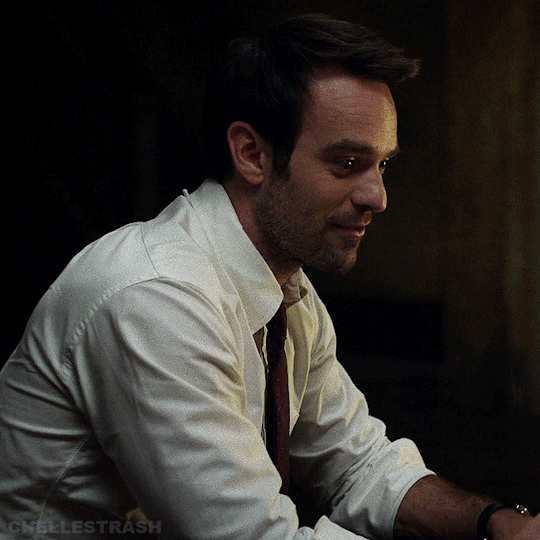
You're fuming when you walk into court. The familiar smug smile at the opposing table doesn't do anything to deter your anger. You slam your briefcase down on the table and stand before Judge Harlow.
"Good morning, Miss-"
"Your Honor, I find it highly inappropriate I was not informed of Mr. Parsons hiring new counsel. Not only that, but he hired new counsel three hours before our hearing today. There is no possible way for this proceeding to be fair without his counsel being adequately brought up to speed. For this reason, I am petitioning for another court date to be held so Mr. Murdock can be properly briefed about the case." Your words are cutting and exact, as you were trained to make them. In law school, your classmates rarely wanted to go against you in mock trial. Moments like this, when your frustration rises to the surface, make you realize why. The dark-haired man with red glasses clears his throat from the opposite table as he stands. It takes everything in you to remain professional.
"With all due respect, your Honor, I believe opposing counsel is just stalling. I have reviewed all the necessary documentation, and it is my fault that Mr. Parsons was pressed for time in finding new representation," Matt says. "Mr. Parsons just wants to resolve this issue as soon as possible so his daughter can be brought home safely after such a… harrowing experience with her sister."
"Ms. Parsons is currently being held without bond at Riker's on an unsubstantiated charge that has no bearing on her ability to raise Bea. This judicial hurdle is a hardship I would think Mr. Murdock would be sensitive to considering his status as a defense attorney and not a family lawyer." You retort, and Matt scoffs. You whip around to face him and find him shaking his head as his fingers flex around his cane.
"Do you consider robbery an unsubstantiated charge when it's caught on video and has multiple witnesses willing to testify to what they saw?"
"Mr. Murdock, if your father kicked you and your thirteen-year-old sister out of the house in the middle of a New York winter, how would you, at eighteen years old, handle it?"
"Order!" Judge Harlow bangs her gavel several times to get everyone's attention, and you take a deep breath. "All of your concerns have been made abundantly clear, counselors, but if Mr. Murdock says he feels prepared, I will have to believe him. However, I do apologize on behalf of Mr. Murdock's office for not properly warning you of this matter, and I trust that he and his office will not make the same mistake again. Now, can we please get on with today's matter without another outburst?"
"Yes, Your Honor," Matt says, that stupid charm dripping from his voice. You bite the inside of your cheek and summon whatever willpower you have left.
"Yes, Your Honor." You say before returning to your table and gathering the relevant documents for the day's hearing.
Robert Parsons is not the first shitty father you've had to deal with in all your years of family law. However, he might be one of the worst. Bea and Morgan's mother, Diana, died in the 2012 attack on New York. Since then, Robert, an NYPD officer, has been able to keep his emotional and physical abuse of his daughters under the radar until this winter when he kicked the girls out after he found out Bea snuck out of the house. He said he was "teaching them a lesson about discipline." Morgan, a kid herself, panicked when Bea spiked a fever and tried to steal Tylenol and some food from a local bodega. A fight broke out between Morgan and the cashier, and the police (her dad) were called. You've been trying to help them since Megan came to you at sixteen, but the system has been working against you at every turn. It doesn't help that the NYPD doesn't protect anyone as well as they protect their own.
So, the fact that the asshole changed counsel three hours before one of the most important custody hearings of your entire year was enough to make your blood boil. The fact that the person representing him is none other than your law school rival, Matt Murdock, made you want to scream. Matt Murdock: Columbia's golden boy, a childhood hero who sacrificed his vision to save an old man's life, Battlin' Jack's son (RE: orphan), the guy who made all the girls in your classes swoon, the guy who told you that family law was a waste of your time. "You just wanna deal with whiny kids all day?" He asked you when you got your internship at one of the top family law firms in the city. For a kid who grew up in an orphanage, you would think he'd have a little more compassion for people who deal with "whiny kids."
It doesn't matter because that was years ago, and you've since worked your way up the ladder to become one of the state's best, most aggressive family lawyers. People come from all over just to get you to represent them against abusive ex-husbands or piss-poor foster parents. You do good work. You know you do. You also know that Matt does, too. You've kept up with him since he graduated, mainly to compare career tracks and see if the days of winning smiles and perfect dark hair would ever end, but of course, it hasn't. Being on his own time in his own law firm suits him, and you hate that it does.
Maybe that's why you show him absolutely no mercy in the court proceedings. You pull every piece of evidence you have that shows neglect, abuse, or even just a smidgen of the mental anguish he's put those girls through. Matt quickly and impressively pivots and challenges that this is not a criminal court and you're going above and beyond what's necessary. You argue about where Bea should go for about fifteen minutes while the custody arrangement is still in the air. You contest that Bea should go upstate with her maternal grandmother, Susan, while Matt says she should go back with her father after the emotional distress of Morgan's arrest.
"Do you honestly believe the best thing for a child undergoing such stress is to move her miles away from the only home she's ever known?" Matt asks incredulously, cocking his head in your direction. You narrow your eyes at him even though you know he can't see you and square your shoulders.
"No, but being away from the man with child abuse charges pending might."
"Mr. Parsons is ready and willing to testify in a court of law that Morgan ran off with her sister in the middle of the night, and he was deploying his squadron to help locate the missing children. However, we aren't here to talk about that. We're here to talk about the safest place for Bea, which could later unfold into where she lives permanently until she becomes a legal adult. Do you really feel comfortable enlisting an elderly woman in the care of a rowdy teenager?"
"Thank you, Mr. Murdock, for the reminder of what today's hearing is actually about. I would've worried you were too ready to treat Mr. Parsons as a defendant." You snap, and Judge Harlow calls to order again. You exhale long through your nose and turn to face her.
"While I appreciate your passion for this case, I encourage you two to find it within yourselves to keep these proceedings as professional as possible," she says. You recognize the tone. It's legalese for "shut the fuck up before you give me a reason to kick you out of my courtroom." "Beatrice Parsons will stay in her current foster home with supervised visits from her grandmother, Susan Kelsey. Given the emotional state of the child, I will not be releasing visitation time to the father until we see an improvement."
"And Ms. Parsons, Your Honor? Will she be allowed to visit Bea upon her release?" You ask.
"That is a matter we can revisit upon Ms. Parsons' release from Riker's. Until then, the only allowed contact with the child is her grandmother and the legal teams. We'll reconvene next Monday morning. Court is adjourned." With that, she bangs her gavel, and you're left reeling. Matt and Robert whisper to each other as you gather your paperwork and pack it away again. Your phone buzzes in your jacket, reminding you that you have to meet with another family regarding another custody agreement in two hours. You sigh and quickly make for the door when Matt and Robert start standing from their table.
You're halfway to the elevator when you hear your name and reluctantly turn around. "Shit," you mumble as Matt taps his cane down the hallway. Thank God Robert is nowhere in sight, and you plaster on a fake smile for potential onlookers. "Mr. Murdock, how can I help you?"
"Well, I was hoping you could hold the elevator for me," he says. "And maybe we could strike a deal on our way down." You chuckle at his confidence and white knuckle the handles of your briefcase.
"I don't think we could agree on anything within a thirty-second elevator ride, but I appreciate your enthusiasm."
"Really? Not even where I can buy you a coffee?" He asks as the elevator dings down the hallway.
"Unfortunately not. I have another client meeting soon. I would've expected a man with his own practice to have similar meetings today, but I guess I was mistaken?" You say as you walk to the elevator. Matt follows suit, laughing at the dig. You press the button for the lobby, and the doors shut, and for a second, it's silent in the elevator. Years of competition and hate linger in the air.
"I've gotta say, I'm impressed with you." He says in a low voice like it's a secret, and you turn to look at him. "Yeah. It's really hard in this line of work to make quite as many enemies as you have."
"It's not that hard to piss people off when you say they shouldn't have custody of their kids. Just like I'm sure people get pissed at you when you defend murderers."
"I don't defend murderers."
"Oh, Karen Page wasn't a murderer?" The name makes him still next to you as the doors finally open. "See you next Monday, Murdock." You say as you step out of the elevator, leaving Matt in the dust.
For the next week, you bounce between client meetings, hearings, mediations, visits to Morgan in Riker's, and late nights in the office, trying to find a way to take down Parsons and get Morgan out of jail. You would think being the daughter of a cop would be better in this kind of situation. You try to pull every string you can find, milk every connection, and almost beg any defense attorney you can corner for long enough. Still, Morgan remains in Riker's the night before the next hearing, and you're exhausted.
Your phone rings that night, and you try not to make a habit of answering work calls outside of your normal hours, but the unrecognized number is too tempting to not pick up. "Let's make a deal," Matt says before you can even get out a proper greeting. You scoff and tuck your phone between your ear and shoulder as you close your curtains.
"Make it worth my time, Murdock. I answered your call on a Sunday night before court."
"I'm willing to defend Morgan in court and get her out of Riker's by the end of the week," he says. You're about to argue that it's a conflict of interest, that if he'd paid attention in the first semester classes of law school, he would've known that, but he beats you to it. "If you agree to drop this case and get Bea home."
"You're asking me to drop charges of child abuse and reckless endangerment of a minor."
"No, I'm asking you to drop the custody portion for now. The child abuse and endangerment charges will move onto criminal court, but that trial will be a waste of time if you don't have a witness like Morgan." He says. It's true. Even though Morgan is beyond the statute of limitations, Bea isn't. Jurors will be sympathetic to a victim but not a criminal. "No one else is gonna help her, and I'd much rather defend her than her father."
"So, what happens if Bea goes back and he beats the shit out of her?" You ask as your phone beeps with another notification. Matt starts a long ramble, but you're not fully listening. "Matt, I have another call coming in. Can we talk about this later?" You don't wait for a response. You just end the call and quickly press the red notification, a crackly voice coming in on the other end.
"And you're sure that's the right amount?" Parsons asks, oblivious to your listening, and someone chuckles in response.
"That is typically the starting payment," you recognize the accent and glance around your apartment, trying to come up with a plan. "Now, if you keep up the flow, we can discuss upping the payment."
"That shouldn't be a problem. It'll be smooth sailing once I get my kids out of the way. You can tell Mr. Dreykov that."

It's cold. Even under all your layers and your gear, it's cold. The city moves like a living beast all around you, its inhabitants oblivious to you hiding on a rooftop with a gun. It's been two hours since that phone call, and Parsons still isn't home. The call ended within a minute of the notification buzzing on your phone, but they didn't make any plans to meet up anywhere. And why would they if their business together is riding on the results of this custody case? You sigh, your mask pushing the air right back at you, as you sit back on your heels and glance at the night sky.
It's rare that you can ever see stars in New York, but sometimes, if you squint, you can catch little glimpses. You struggle to focus on constellations with the screeching of subway brakes and loud horns penetrating the otherwise peaceful night. You've been doing this for a long enough time that you no longer stress yourself out about things like this. It's work. It's what you're supposed to do, and you get away with it. With all the other masked idiots running around the city— not limited to The Masked Idiots that moved upstate after Stark Tower was destroyed— and the gangs, police are never able to track where bullets are coming from. If they happen to, it's just another job to finish. Not a big deal.
You look to Parson's apartment again and find it still dark and empty. It isn't until you go to adjust the scope that something shuffles behind you, and by that point, it's too late to stop the arms from wrapping around your shoulders and pulling you backward. You throw your head back until you hit something hard, and the grip on you falters enough for you to slip out. There's a mess of punches, kicks, and elbows thrown as you try to get away from your attacker, but with every movement, they seem to anticipate it before you do. It isn't long before you're pinned to a brick wall, too far from your gun, with a gloved hand wrapped around your throat.
"Why are you targeting him?" A deep voice asks above you, and you kick your feet under you, trying to get the upper hand, but he's too strong. His grip on your throat tightens, and you gasp for air. "Last chance." He threatens, and your head swims with no oxygen.
"The recording," you croak. His hand loosens around your windpipe just enough for you to get more information out. "Listen to the recording. On the phone." He drops you as fast as he grabbed you, and you collapse to the ground in a heap of heavy breaths and gasps. You can hear an old, familiar voice in your head calling you pathetic and weak, but you ignore it to focus on getting breath in your lungs.
"This is your phone?" The voice asks as he holds up your burner flip phone from 2007, and you scoff.
"Didn't realize I'd be interrogated for my choices in cellphones," you manage, and you imagine the eye roll rather than see it through the red of his mask. You've seen pictures of him before. You've read the articles calling him a vigilante, a wanna-be Avenger, a menace to society. You know him. He stares at you (through you?) carefully as he puts the phone to his ear and listens to the most recent recording from Parson's phone call. You wait for the muscle in his jaw to clench and unclench before pulling yourself to your feet and walking over to him. You take it as a good sign that he doesn't try to throw you off the building for moving and get close enough to him to make out the faint stubble on his square jaw.
"Parson's trafficking girls?" He asks, more to himself than anything, and you nod. "How'd you know about this?"
"Parson's been receiving huge payouts from off-shore accounts for a few years. All it took was tapping the big mouth's phone to figure out who he was talking to and about what," you explain as you open your hand to ask for your phone back. He obliges, but not without a dramatic sigh. "Y'know, I thought you would've had a better idea of what goes on in the city, Devil Boy."
"How has this not been flagged by anyone else?" He ignores your jab, much to your dismay.
"The Red Room has informants and Widows in almost every functional part of society. If they want something to stay quiet, they'll find a way."
"I thought Romanoff exposed them."
"Deykov made it impossible to cut ties with the Red Room and other Widows for years. Somehow, Romanoff got out. Barely, but she made it out. There's no way she'd do anything to piss them off now. Not when she's gotten this far," you say. "As far as the public knows, Black Widow is an Avenger and nothing more."
"You got out."
"I'm not a Widow."
"No?" He asks, and you shake your head. "So, you just had a military-grade weapon and tactical gear lying around?"
"Can't a girl take herself on a shopping spree?" You ask, not willing to justify him with a real answer. The rooftop goes quiet as you think about what the next step is.
"You don't have to kill him." He says softly, like he's anticipating your reaction. You bite the inside of your cheek and turn to him, annoyance building in your stomach.
"What did you just say to me?"
"I know you want him to suffer, and trust me, he will, but if you want things to change, you need to get information from him. To get information from him, he needs to stay alive."
"What are you? A fucking altar boy?"
"Those girls don't get justice if you kill him."
"Justice," you laugh. "He gets to kidnap, torture, and brainwash little girls, and I'm supposed to just let him rot in prison? Is that justice to you, Red?" He's silent, and you shake your head. "Yeah, I didn't think so." You're about to turn back to your gun and find a way to make him leave you alone when three police cars go speeding down the street behind an FDNY truck. They're speeding and more urgent in their driving than you've seen in a long time. A rogue thought pricks at the corner of your brain, and you mumble a curse.
Quickly, you open your phone and jam a few buttons until the sound of a police scanner comes through the shitty speakers. "Explosion reported at the corner of Ninth Ave and West 42nd. Multiple casualties have already been reported by people at the scene," a voice reports on the other line, and you hold your breath. "Officer Robert Parsons was reportedly inside the bar when the gas line blew, and he is assumed dead."

The first thing you do when you get to the office in the morning is file an emergency petition to assign temporary custody of Bea to her grandmother. You're almost positive it'll get approved, considering how there's no one else involved in this custody case. Now free from his obligation to Robert, Matt sent you an email early this morning saying he would defend Morgan in court. You didn't respond. There are too many moving parts to focus on to care about responding to a pity representation in court.
Robert was talking to somebody from the Red Room not even four hours before he died in a fiery explosion. FDNY ruled it as an accident, but you know better. Did he blabber to someone on the force about the off-shore accounts? Did Dreykov's men just finally decide he wasn't worth all the trouble anymore? Did they find out you tapped his phone? If they did, it's only a matter of time before someone finds you. All the hairs on the back of your neck stand up as you stare at the blinking cursor on your computer screen. Your secretary, Margaret, saying your name makes you jump harder than it should've.
"Oh! Sorry, I didn't mean to scare you." She says in all her midwestern politeness, and you shake your head.
"I'm just a little jumpy this morning. Didn't get a lot of sleep last night." You wave her off, and she raises her eyebrows at you sympathetically.
"D'you want me to go get you a coffee?"
"No, thank you. I probably need to lay off coffee for a few hours," you sigh. "Did you need something from me?"
"Oh, yes. Someone called and left you a message... A Matt Murdock?" She says like she's hoping you'll recognize the name, and you nod.
"What'd he say?"
"He wanted to meet with you for lunch to discuss something. He didn't say what." Fucking Matt Murdock, you think. Finding a way to wiggle back into your life just because of one stupid case. "I can tell him no if you want me to."
"No, it's okay. I'll meet with him. We have some unfinished business together." You say, and she leaves to confirm lunch plans with Matt's office. You take a sip of your water, and your throat screams in pain from Devil Boy nearly choking you to death. The reminder that he knew about Parson's involvement with the Red Room before disappearing into the night makes your skin crawl. Another loose end to tie up at another time. Still, your head pounds with all the swirling information and the knowledge that there's no way you'll be getting rid of Matt Murdock anytime soon. "Shit."
#matt murdock x fem!reader#matt murdock x reader#daredevil x reader#daredevil fic#matt murdock fic#matt murdock#mcu fic#i wrote this for me but you can read it too i guess
187 notes
·
View notes
Text
Laces for a Lady - 18th century poly shifter romance (Part one, sfw)
Disclaimer which I’m including in all my works after plagiarism and theft has taken place: I do not give my consent for my works to be used, copied, published, or posted anywhere. They are copyrighted and belong to me.
Well folks, here it is. You said you were interested, so I hope it meets expectations! Here's part one for you, of a multi part story. If you want to kno wmore about it, you can find some more info here, as well as a little 'mood board'.
Content: sfw, the daughter of a country gentleman from Sussex relocates to a sleepy fishing village in Cornwall in order to become the paid companion of a young widow, and meets some of the locals on her arrival.
Wordcount: 3972

Five and twenty ponies,
Trotting through the dark -
Brandy for the Parson, 'Baccy for the Clerk.
Laces for a lady; letters for a spy,
Watch the wall my darling while the Gentlemen go by!
~ from ‘A Smugglers’ Song’, Rudyard Kipling (1906)
In the cool, lavender light of a late spring dawn, a gaff-rigged cutter drew into the sheltering arms of a small bay at high tide, and quietly dropped anchor. As if the soft splash had awoken him, a cockerel spluttered to life in a farmyard somewhere inland, but most of the villagers were already up and awake and steering their small, secret fleet of boats out from the golden crescent of sand beneath the cliffs to meet the waiting ship fresh from Roscoff.
Beneath the waves, where churning kelp moored itself in unyielding handfuls to the ancient granite of the sea floor, a long, serpentine shadow snaked between the stalks, and the currents of the coastline subtly shifted. Any revenue men trying to sail along the coast from Fowey to catch the smugglers would have found the wind and tide set dead against them, and in the subtle wake that wafted from the mottled, eel-like tail as it passed unseen, the waters of the secluded inlet calmed beneath the keels of the scurrying fishing boats. The drag of the oars through the waves lessened, and muscles already tired from heaving and hefting goods up the cliff moved a fraction easier for the unexpected boon.
Between them over the next hour, the gathered men and women shifted their haul of half anker barrels and dozens of crates and boxes of goods ashore. The small kegs of rich, French cognac would fetch a pretty price all across Cornwall, and along with the liquor came smaller luxuries like lace and silk, and bundles of tobacco and spiced tea, all meticulously wrapped in oil cloth to keep the sea and the salt and the water out.
And when the speedy, slender ship was riding noticeably higher in the water, the locals simply melted away into the countryside like so many mice from a late summer granary before the excise men even knew the ship from Guernsey had visited the cove at all.
Fifteen miles away, as the sun breached the horizon and cast its first rays of warmth along bellies of fleecy clouds and the flanks of blossoming hedgerows below, a stagecoach lurched and rumbled westwards along potholed roads, and a young woman stared out of the grimy window as the horses carried her into a new chapter of her life.
After leapfrogging some two hundred miles or so along the staging stations that dotted the South Coast, with nothing but a small trunk of her belongings and a thrice-read, dog-eared novel for company, Eleanor Bywater was more than ready to see the back of that infernal stagecoach. Had it not been for the small but inconveniently bulky travelling case sitting at her feet, she might have hired a horse and ridden from the last staging inn at Plymouth to reach the secluded fishing village of Polgarrack, but given that the trunk held all her worldly belongings, she had not been quite desperate enough to escape the discomfort of hard seats and poor suspension to abandon it.
Bouncing along in the nearly-empty stagecoach, she studiously tried to ignore the older woman sitting opposite her. She’d stared intently at Nel since they'd left Plymouth behind that morning, and her scrutiny had begun to make that last twenty mile stretch feel much, much longer.
Finally, after jouncing over a pothole deep enough to start prospecting for copper ore at the bottom, Nel gasped and then raised her eyes to meet the woman’s openly curious stare. She found sympathy for her own discomfort, and a small degree of kindly amusement too.
“Where are you headed, miss?” the stranger asked after Nel raised the hint of an eyebrow at her as the silence stretched.
“Polgarrack.”
At that, the woman’s grey eyes narrowed in confusion. “Now what takes a young miss like you to an old fishing village like Polgarrack?”
She looked to be in her fifties, though a life beside the harsh sea had weathered her features somewhat, and her wiry grey hair was covered by a simple linen cap. Her dress was dark and plain, though there was a hint of tired lace around the neck and cuffs. Her hands had the tough, reddened look of someone who scrubbed pots and salted fish, while Nel’s own hands were smooth and soft, if a little ink stained from sending a letter to her friend before leaving the inn that morning.
Nel laughed quietly and shrugged. “There’s no mystery to it,” she said. “I am to be employed as a companion to the widowed Lady Penrose at Heath Top House. I am expected there this afternoon.”
Given that only ladies of relatively high social standing themselves tended to become a ‘lady’s companion’, the older woman made a hasty re-evaluation of her fellow traveller, and her already ruddy cheeks flushed a darker shade as she cleared her throat and looked away.
“Begging your pardon, miss,” she said. “We don’t get many new faces in Polgarrack, is all. I didn’t mean to pry or cause offence with my questions.”
“No harm in a little curiosity,” Nel said, trying to put the stranger at ease to avoid any further awkwardness between them on the remainder of their journey. “I take it you’re from Polgarrack yourself then?”
“Oh, born and raised, miss,” she chortled. She eyed the forest green redingote Nel wore, with its rather masculine high collar, wide lapels and small, gold pocket watch dangling on a chain, and the contrasting sage green skirts beneath, and no doubt made one or two judgements of her own about the young lady. “And yourself? You don’t sound as though you’re from these parts at all, if I may be so bold.”
Nel smiled. “I’ve come from Sussex.”
The woman’s watery, grey-blue eyes widened almost comically and she gasped. “’at's a bloody long way, miss! And all on your own?” She shook her head but remembered herself and mumbled, “Begging your pardon.”
“You’re right,” Nel sighed, letting her gaze slide to the window to watch the countryside roll past in a blur of salt-bleached grass and vibrant yellow gorse flowers. “It is a bloody long way.” And her spine and backside felt every lump and bump and lurch of the stagecoaches from Sussex to Cornwall. With a warmer smile, she turned back to the woman. “My name is Eleanor, but most people call me Nel.”
“Agatha,” she replied with a grandmotherly smile of her own for the young woman. “But everyone calls me Aggie. My husband, Martin, is the village carter and smith, and we’ve got four boys, all of them either fishermen or miners. They all married too, so I’ve got nine grandchildren, if you can believe it!”
Nel offered Aggie her congratulations and another little smile, and then ventured to ask, “Will you tell me a bit about the place? I should like to know more about it, since it is to be my home for the foreseeable future.”
Aggie brightened even more and shuffled her plain, dark skirts, giving a wince and a grunt as the coach lurched over a pothole and the driver cursed audibly above them. Settled, if not entirely comfortable, she began.
“Well, see now. Folks has been fishing these waters for time out of mind. Pilchards is our mainstay, o’course, but the folks over St. Austell way mine clay, and obviously there’s copper and tin mines all over in the north of Cornwall. Mining here is as old as fishing, but it’s starting to dry up here and there now, o’course.”
She barely paused to draw breath before barrelling on, and Nel sat and listened while the older woman talked.
“Now, your Lady Penrose married into the Penrose family — see, she’s from Bath herself originally, though I can’t rightly remember what her family name was, but…” Nel let Agatha's potted history of the fishing and mining community wash over her, paying just enough attention to make polite sounds at the right pauses, but the discomfort of the journey and a decided lack of sleep was beginning to wear her attention span down to a single, fraying thread.
After two hours in the swaying, rolling coach, she felt woozy and weak-stomached, but with Aggie’s near-constant chatter, she at least had a better understanding of the politics of the little village than she’d ever have gained in six months on her own. She’d also learned why Aggie had been in Plymouth, since most folks never had any reason to travel further than the bounds of their own parish. Agatha’s sister’s husband had apparently been killed in the American Revolutionary War some ten years earlier, and since the widow’s health wasn’t the best these days, Aggie made the trip along the coast when she could to see her and take care of her.
Nel’s ticket took her as far as Whitcross, a desolate intersection of paler roads on a clifftop overlooking the tightly-nestled fishing port below, and away across the heather and tufted grass of the heath, she could just see an old manor house in the distance, flanked by tall copper beeches and ash trees. It looked slightly further away than she had anticipated, and she glanced apprehensively down at the travelling trunk at her feet.
Still, she was aching for fresh air and to be free of the sickening motion of the carriage, so she took the driver’s hand and allowed him to guide her safely down onto the hard-packed surface of the road before he lifted her case down for her as well.
From inside, Aggie peered out and scowled disapprovingly. “Now just you wait a moment,” she barked at the driver, who cocked an eyebrow but did pause. “Did they not send someone for you, dearie?” she asked Nel, still leaning out of the doorway and peering about like a disgruntled badger, and using the endearment freely. Apparently, two hours of talking non-stop at Nel had removed any pretence of formality or sense of social distance. Nel might as well have been adopted into Aggie Carter’s family as a niece by that point, and she couldn’t help but smile at the warmth it conjured in her chest.
“I… I never thought that far through,” she admitted, with her hand atop her bonnet as the wind gusted up from the sea below, soaring delightedly over the edge of the cliff and racing on inland as if to continue the momentum of the great rolling breakers that foamed and thundered against the shore. The coachman glanced at his pocket watch and groused something about a schedule that was almost immediately lost to the next inward gust.
“No, no, dearie,” the old woman scoffed. “No, you must come into the village. It’s far too far to go all by yourself, and with that case as well. Here, let me —”
“I can manage the case, I assure you,” Nel said with a gentle smile as Aggie half-toppled, half-leaned out of the coach to pick up the case. “How far is it to the house?”
“Two miles up that hill yonder,” Agatha said, pointing with one gnarled and arthritic finger towards the house on the rise to the north. “Come to the Lantern, and we’ll have one of the lads take you up once you’ve caught your breath.” The Lantern, as Nel now knew thanks to Aggie’s detailed prattling, was the inn at the centre of the village, right on the water near the harbour.
She had been about to protest, but with a sigh, she simply nodded. The constant journeying and jolting had worn her down more than she cared to admit, and while she wasn’t the kind of wallflower she’d met any number of times in London during the Season, a life led mostly indoors with few opportunities for physical activity had not prepared her for a two mile walk in heavy, too-fine clothes, carrying an unwieldy case in gusty conditions. Her family had been invited a number of times to Goodwood House to walk the large park there, and she had frequently ridden a rather spirited mare through the parkland of Lavington Hall with her dear friend William, so she was not entirely unused to the great outdoors, but she did have to admit that her experiences had been rather more curated and sanitised than the wild expanse of heathland visible on all sides of the stagecoach from Whitcross.
“You’re kind, Agatha,” she said, and let the woman heft her case into the otherwise empty coach.
The thing about a tiny village was that an outsider stood out a mile, and a young lady in her mid twenties and dressed in impractical, rich green clothes, stood out like a beacon in a dark night. Everyone turned to watch her as she disembarked from the coach. At home, she had barely garnered a look from anyone. Being the centre of everyone’s curiosity there was novel and, in a word, horrifying.
She almost blurted aloud that one would think she was a revenue man come inspecting for smuggled goods, but she bit it back just in time. Cornwall’s so-called ‘free trade’ and smuggling rackets were absolutely none of her concern as an outsider, infamous though they may be, and it would do her no good to start sticking her nose where it did not belong.
The Lantern was a half-timbered, two-storey building that faced the walled harbour. Its painted sign was peeling and sun-bleached, and it squawked something dreadful as it swung back and forth in the squalling wind. Mullioned windows glinted and shimmered, though the small, diamond panes were caked with a haze of salt spray, and alongside the inn, a hand-cart rumbled down from a narrow side alley towards the harbour beyond, where fishing boats bobbed on their mooring lines at the lapping high tide.
Agatha pushed open the black-painted door but came to an abrupt halt as someone appeared to be leaving the inn at the exact same moment, and nearly barrelled into her and Nel.
“Oh, excuse me,” came a young man’s hoarse tenor, and he stepped aside within the inn’s small porch to allow the two women to enter before he left.
Nel noted briefly that he wore well-made but plain clothes, and carried a hefty looking cane in his left hand, upon which he leaned while he waited for them to pass. He was pale and thin, his undyed linen shirt hanging loosely off his shoulders, and his light brown hair was tied back at the nape of his neck into a horsetail. The moment he met her eye, he inhaled in surprise and almost immediately looked away, his large, dark brown eyes turning shy and uncertain. “M’lady,” he mumbled without looking up.
She didn’t have time to correct him and tell him she had no such title, because the moment she had stepped inside, he was off out into the day beyond, limping markedly on his right leg as he went.
Nel turned back to find Agatha waiting for her, watching. “That there was young Edmund Nancarrow,” she supplied as Nel caught up with her. “Local lad. Lots of Nancarrows in this area,” she chuckled. “Can’t move for tripping over a Nancarrow. He was a shy, skittish thing even before he went off to war in the Colonies and came back with a bad leg,” she added. “But he’s a sweetheart if ever I saw one. Tailor’s ’prentice he is now.”
At that, Nel just nodded. Something in her ached when she realised she probably wouldn’t have much to do with the folk from the village once she was ensconced up at Heath Top House, and she half wised she could. They already sounded far more interesting than the Lady Winnifred Penrose, with whom Nel had only exchanged a short flurry of letters before becoming formally engaged as her ‘companion’.
Still, an unmarried woman of Nel’s age and social standing was considered almost past her prime, and given that the few marriage proposals she had received had faded into the mists of her very early adulthood, she had had to find another respectable way to support herself. Hence, Heath Top House.
Aggie bustled her into the main room of the pub, and their arrival caused a flurry of activity that drew the eyes of a good few patrons.
Seated at the wooden bar inside, hunched over a pewter tankard, sat a tall, bulky man in his late-thirties or early forties, with long, thick, dark grey hair shot through with a shimmer of silver white. He had it tied back off his face in a low ponytail at the nape of his neck and as he turned to regard Nel’s arrival, she met unusually deep green eyes surrounded by a web of crows’ feet lines in a tanned, weathered face. His scowl was dark and full of suspicion, but even the storm clouds in his expression couldn’t mask the fact that he was handsome, in a rugged, rough-hewn kind of way.
When she saw where Nel’s attention had snagged, Aggie let out a little gasp and snatched her by the upper arm to steer her towards an empty table in a bay window, about as far from the wooden bar where the man still sat and glared at them as it was possible to be.
“And that’s Locryn Trevethan,” Aggie hissed as she saw Nel settled into a seat. “Can’t say as I’ve seen him in here more than a handful of times this year though. He’s usually out on the water. Lives alone in an old stone cottage round the bay from here, up at Pilchard Sands. You’d probably best be giving him a wide berth, miss. Not that he should give you any trouble, mind,” she amended carefully, “But he’s not for the likes of you to go mingling with.”
Nel smiled at the protective tone in the older woman’s voice, and nodded once.
With her warning given, Aggie raised her voice and called over to the old man behind the bar. “’ere, Tom! This young lady needs a ride up to Heath Top. You think you can arrange that for her?”
The stoop-shouldered, white-haired man nodded and knuckled his forehead at Nel across the space. “Not the finest, but we got a cart.”
“If you have a horse, I could ride,” she said, trying to be helpful.
“Ain’t got a saddle for a lady,” he said regretfully.
Memories of galloping through the leafy trees of Lavington Hall’s parkland with William flashed across her mind and she suppressed a smile. She certainly hadn’t ridden the grey mare side-saddle while keeping up with her childhood friend, and although it had been a year or so since she’d sat astride a horse instead of side-saddle, she thought she could manage well enough. “I know how to ride a man’s saddle,” she said, “But I do have a travel case I’d need to send someone back for.”
“I could get one of the lads to bring that up for you after,” said Tom, “But it’s almost as much effort to hitch up a cart as it is to tack up a horse for riding, ma’am.”
“Whatever is the least trouble for you will do fine,” she said, and the stoic, weather-beaten old man’s red cheeks darkened and he ducked his head.
While Tom left to sort out transportation to the house, Aggie flapped about getting some refreshments for Nel, leaving her to wait at the table alone.
In the wake of the hubbub and pother Agatha left behind her, Nel took a long, deep breath looked around to find Locryn Trevethan still staring across the room at her. Taken aback by his directness and the intensity of his glare, she tried to smile, but his expression remained thunderous beneath strong, dark brows, and she quickly looked away, embarrassed.
In a face turned to leather by the sun and sea-wind, wide cheekbones and a heavy brow framed his piercingly green eyes. Never mind that marked crow’s feet around his eyes that made him look like he would rather have been laughing; the contrast between the dark, hostile glower and the soft laughter lines unnerved her and made her feel off-balance, as though her stranger’s presence in their local pub had unknowingly raised the ire of a usually gentle man.
He had a short, neatly-trimmed, salt-and-pepper beard around full lips that were currently turned down at the corners and which bore a silver-pink scar across the middle. Despite the warm day, he wore a fisherman’s dense, woollen sweater, and when she risked another look back at him, she found him still frowning openly across the bar at her.
Nel didn’t relax until Aggie returned, at which point the man snapped abruptly out of his trance, slammed a coin down on the bar, and strode from the pub on long legs that were thick as tree trucks at the thigh. The door bounced back off the plasterwork in his wake and his boots rang on the flagstones outside.
“Not one to welcome strangers, I take it,” Nel muttered, and downed half of the cheap, watered-down wine that Agatha had set on the table for her.
“Oh don’t you pay him no mind, miss,” Aggie scoffed, settling herself down into the seat opposite her like a brooding hen and glaring at the pub door. “He don’t seem to like no one in Polgarrack save for sweet Ned Nancarrow, strangely enough. Then again, I ain’t met no one who’s taken a disliking to sweet Ned. Now, Tom will have the horse and cart ready for you in just a moment, but you just take your time and recover after your journey.”
Nel, who had felt ten times better the moment she’d taken her first proper lungful of sea air on stepping out of the swaying stagecoach, looked across the table into the older woman’s face and found a mother’s kindness and compassion in her wrinkled face, and something twisted in her gut. “You’re very kind,” she whispered, unable to muster anything more. “Thank you.”
She chuckled. “You know, and don’t you take this amiss, but you remind me of my niece a little, though she’s a little younger than you.”
Nel’s eyebrows twitched in wry amusement, and Agatha blushed at the impropriety of her words. Nel didn’t get the chance to reassure her because Tom shuffled back in and told her the cart was ready for her.
She laid a coin on the table for the wine and stood, following the innkeep out into the yard and clambering up with her case into the back of the cart. It was hardly a very dignified mode of transport for someone of her station, and when Tom said as much while they rumbled out of the inn’s yard, Nel just laughed and said she didn’t mind.
“Anything is better than that awful rolling stagecoach,” she beamed, and swung her legs back and forth like a child off the back of the cart bed while Tom clucked his tongue at the horse to hurry up.
As they trundled up the narrow, cobbled street from the harbour, they passed Edmund Nancarrow standing outside a tailor’s shop, talking with the beast of a man from the bar. Both men looked up and watched her pass like she was some kind of rare spectacle.
In a way, she supposed she was.
Still, she smiled at them despite her nerves, and Edmund knuckled a non-existent cap at her with a shy smile, while Locryn just glared.
She sighed and wondered what this next chapter in her life would bring.
___
Next chapter ->
Well, what did you think of it so far? I can't wait to hear your thoughts on it, as always!
I hope you’ll consider reblogging as well as leaving a like if you enjoyed it. Take care, and I hope you have a lovely day/night wherever you are, and whenever you read this.
| Masterlist | Ko-fi (tip jar)
#selkie#bucca#polyamory#polyamorous romance#poly story#o#historical fantasy#shifter romance#poly shifter romance#18th century romance#shapeshifter romance#m/m/f
236 notes
·
View notes
Note
I agree with your opinions for the most part. But there are still some points of contradiction. For example, if Jared left the show, the spn wouldn't last much without him. If you exclude the bias towards Jensen and Misha, with a proper plot, the series could very well exist. Like making a move with Sam finally finding peace, leaving hunting and starting a family. Dean is happy for him and continues to do what he loves and knows well - hunt monsters and protect people and that includes Sam and his new family.
Just if you take the concept that Sam(Jared) is the main character and the story is about him and Dean(Jensen) is secondary and the story can't be without a main character, then what about The Big Bang Theory series? Obviously Leonard is the main character and Sheldon is secondary. But when James Parsons wanted to leave the show(several times) it wasn't allowed? Why? Sheldon is not the main character, neither is Dean, BUT they are both audience favorites.
Suppose if the situation was the other way around and Jensen was the one who wanted to leave the spn, the show wouldn't make sense either?
Just based on your logic, the main character leaving is a failure for the show. That said, the departure of the same James Parsons would be a big blow to the show. His character even got his own series in the end. Maybe that's what Jensen wanted. And then I don't understand why he didn't just do a series about John when Meri died and he was left alone with kids and monsters. That would have been so much more interesting!
I think I may be misinterpreting "bias towards Jensen and Misha", as in my bias or the show's bias? If the latter then put down that non-canon-compliant fanfiction and slowly step away.
The Big Bang Theory worked with Leonard as the lead until he and Penny got married, which ideally was when the show should have ended because the show started with him pining after Penny. But the show continued for 2 more seasons with the focused moved to Sheldon & Amy and it was very noticeable that the original magic was gone and the show was cancelled shortly after. The ratings in viewership and demo for the last 2 seasons were steadily going down.
I've said many times here that when shows lose their leads, they are either cancelled or limp along for 1 or 2 more seasons (X Files, The Office, Scrubs, 70's show, The OC) but then fans and critics complain that the show got way worse. So even though The Big Bang Theory still had their lead Leonard on the show, moving the focus to Sheldon & Amy still resulted in the show's cancellation 2 years later.
Moving SPN's focus from Sam to Dean & Cas would have had the same result, cancellation in one or two seasons. So the "proper plot" you speak off wouldn't save a Sam-less show. WB knew that and that's why they cancelled Supernatural.
If it was Jensen who left SPN back in season 3 or 4, the show still would have continued to season 5 to reach syndication. During that time the role of Sam's new partner would have been casted and if he or she worked well enough with Jared, then the show could have continued after season 5. Shows that lost their main secondary character have successfully continued for several more seasons: Monk, Cheers, Greys Anatomy, Law&Order:SUV, and of course Walker. NYPD Blues' Andy famously went through 4 partners in 12 seasons, each partner just as popular as the last.
I agree that the Supernatural prequel should have been about a widowed John and wee Sam and Dean. That was Michael Rosenbaum’s immediate assumption on his podcast interview with Jensen. He missed a real opportunity for a young Sam and Dean prequel because nostalgia for the 80s is at an all time high. It could have been his version of Stranger Things as wee Sam and Dean explore the strange and the supernatural, like Sam’s imaginary friend Sully and we get to know more about the Zannas, the only supernatural creatures without agendas against mankind.

75 notes
·
View notes
Photo
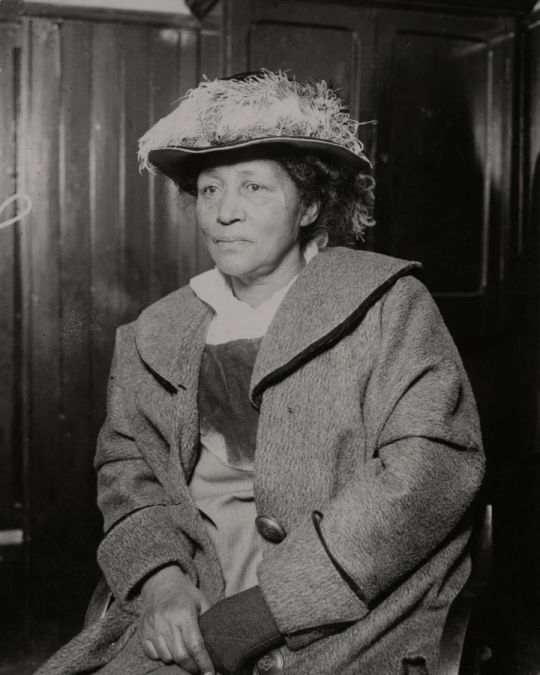
On this day, 7 March 1942, Lucy Parsons, anarchist, co-founder of the revolutionary Industrial Workers of the World union and lifelong advocate for working people, the homeless, women, and Black people, died in a house fire. Born into slavery in Virginia to an enslaved mother, Parsons later moved to Texas and became a famous revolutionary firebrand. Instead of voting for politicians, Parsons advocated direct action to change the world, advising workers: "Never be deceived that the rich will allow you to vote away their wealth." As dangerous to the authorities in death as in life, after the fire the police confiscated all her papers and books. She was also the widow of Haymarket martyr Albert Parsons. Learn more about women in the IWW in episode 16 our podcast: https://workingclasshistory.com/2018/12/02/e16-women-in-the-early-iww/ https://www.facebook.com/workingclasshistory/photos/a.1819457841572691/2224937614358043/?type=3
356 notes
·
View notes
Note
I LOVE the movies that have the younger actresses/actors in them (I've seen Nathan Dean Parsons and Heather Hemmens on RNM and i loved them there, so seeing them on hallmark makes me excited), but i really couldn't possibly agree less with the anon that the older actresses are aging out.
I LOVE seeing women in their 50s+ in stuff and that's one of the reasons I love hallmark is because it's one of the few networks that consistently employs women that age (I'm 29, but I'll be a 50-year-old woman some day, so I think it's empowering to see 50+ women still being leads and kicking ass).
I hope we continue to get younger actors, but they also continue to make stuff with the actors in their 40s and 50s.
Yeah, I think it's great that Hallmark has always valued women in general. It's one of the best things about the network.
I think part of the fatigue if we want to call it that is the lack of original plots that make sense for women of a certain age. I think Hallmark is doing a lot better with having more divorced or widowed, etc. characters and putting them in situations that are realistic now which is nice. I think the mysteries work nicely too.
The older actors aren't going anywhere. Hallmark knows who the audience likes to see. But with like 100 new movies a year across both channels there's plenty of room for them to be more creative and diverse with their casting.
14 notes
·
View notes
Text
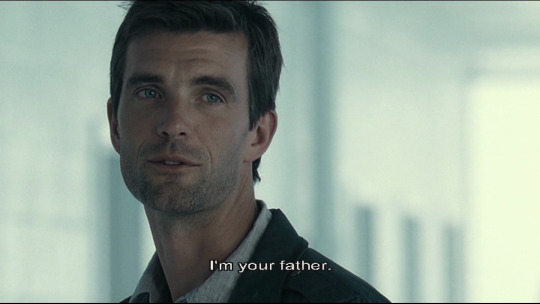

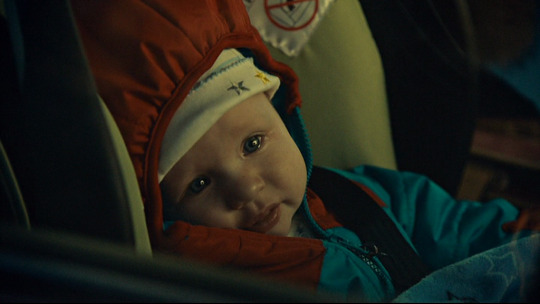

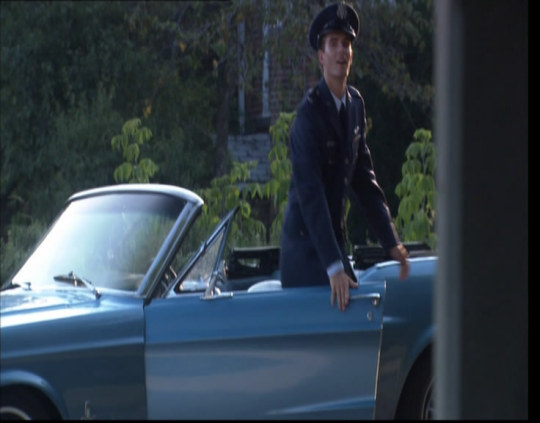

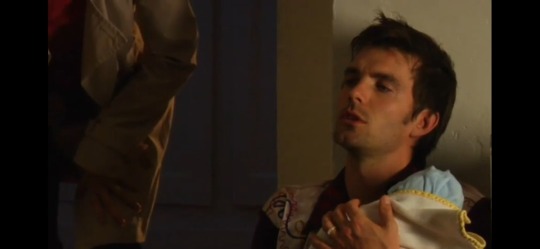

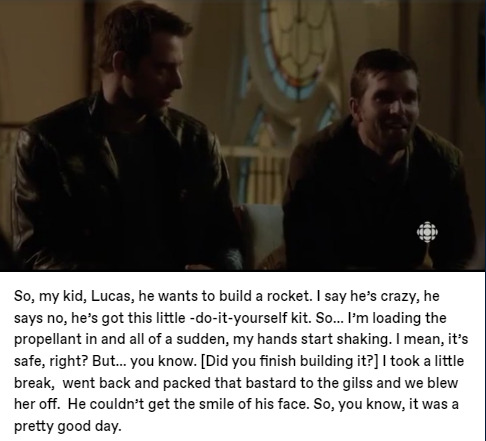
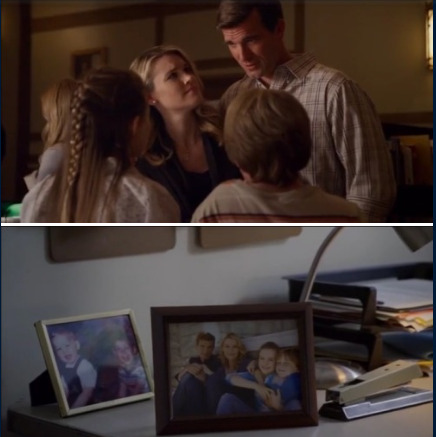

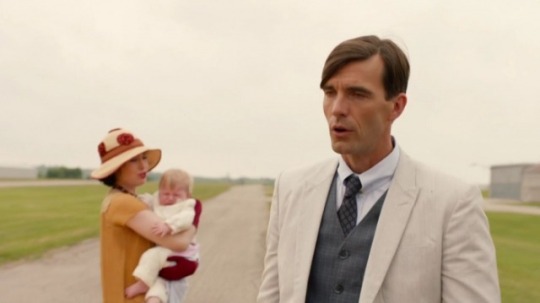
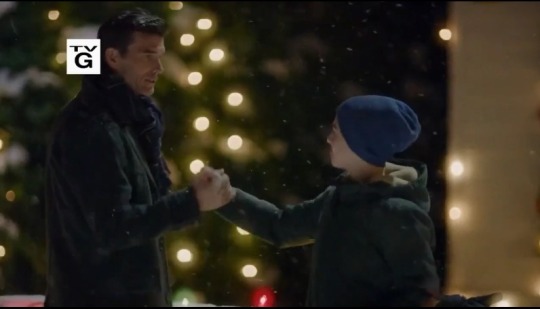


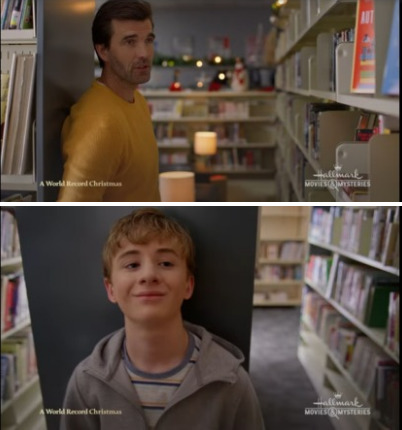
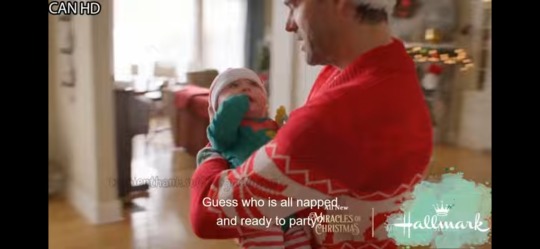
Lucas Bryant as (Step)Dad (2004-2023) [for Finnish Father's Day 2023]
1. Nathan Wuornos (Haven 3x13 Thanks for the Memories/ 5x26 Forever, 2013/2015)
2. Young Chuck Taggart (Odyssey 5 1x14 Begotten, 2004)
3. Calvin Puddie (Playing House, 2006)
4. Harry (Faux Baby webseries 1x5 Super Dad, 2008)
5. Peter Claus (Merry In-Laws, 2012)
6. Jesse Powell (Cracked 1x12 Old Soldiers, 2012)
7. Daniel Kenman (Secret Summer, 2016)
8. Colin Fitzgerald (Summer Love, 2016)
9. Phillip Anderson (Frankie Drake Mysteries 1x8 Pilot, 2018)
10. Jack Sutherland (Time for You to Come Home for Christmas, 2019)
11. Matthew Anderson (The Angel Tree, 2020)
12. Matthew Jamison (Five More Minutes: Moments Like These, 2022)
13. Eric Parsons (A World Record Christmas, 2023)
1. Biological father of James Cogan (Steve Lund), 20 years before he was born. Gets to raise him after the finale from a baby.
2. Young version of Chuck Taggart, father to Neil and Keith.
3. Expectant father, briefly co-parent, ends up with the mother (Joanne Kelly).
4. His wife (Missy Yager) gets a practice doll when they are thinking of getting kids.
5. Son of Santa, a teacher, wants to marry an astrologist (Kassia Warshawski) with a son who is in his class. Jacob Thurmeier as Max Spencer.
6. Homeless army vet suffering from PTSD makes some attempts to be a better father to his son raised by his brother.
7. Father and husband with two kids works a lot, so he has his brother take care of the kids during a summer. Max Page as Noah and Chiara Aurelia as Hailey. Emily Rose as wife.
8. Maya (Rachel Leigh Cook) works an internship at his tech company over the summer, they fall in love. Maya's daughter approves as they go sail around. Hannah Cheramy as Addison Sulliway
9. 1920s Canadian pilot and eugenics enthusiast. Has a deaf son he tries to get kidnapped and killed. He dies instead.
10. Meets a widow (Alison Sweeney) and her son on the way to figure out who saved his life years prior. Turns out it was the widow's late husband. He falls in love and gets along well with the son. In Time for Them to Come Home for Christmas (2021), Alison Sweeney's character reveals they got married. Kiefer O'Reilly as Will Moss.
11. Reunites with childhood best friend (Jill Wagner) who has a daughter and a dead husband. Also raising his nephew while his sister Zoe (Clare Filipow) is stationed over seas. Cassidy Nugent as Cassie McBride and Oscar Farrell as Owen Anderson.
12. Played football with the widow's (Ashley Williams) husband in high school, now works as a real estate person wanting to buy the house they lived in. Helps renovate the house and they fall in love while he also develops a relationship with the son. A funcle to 8 nephews. Brady Droulis as Adam Morrison.
13. Stepfather to an autistic kid. Bio dad left. Becomes Dad to Charlie and has another baby with his wife (Nikki DeLoach) in the end. Aias Dalman as Charlie Parsons.
#lucas bryant#lucasbryantedit#haven cast#havensyfy#nocticola art#nathan wuornos#odyssey 5#calvin puddie#playing house 2006#harry (faux baby)#merry in laws#peter claus#jesse powell#cracked cbc#secret summer 2016#summer love 2016#frankie drake mysteries#1x8 pilot#time for you to come home for christmas#jack sutherland#matthew anderson#philip anderson#matthew jamison#the angel tree#five more minutes moments like these#a world record christmas#james cogan#steve lund#eric parsons
17 notes
·
View notes
Note
In a post a week or so ago, you mentioned how Brandon would likely set up an annuity for Eliza 2 in his will. I don't know how difficult a question this is, but how much do you reckon this annuity would be? What sort of lifestyle would she be able to maintain on it? e.g. would it be enough for her to have servants?
This question refers to this post.
To answer this question I'm going to refer to Elizabeth Gaskell's Cranford. The spinster daughter of Cranford's former parson is able to maintain herself in the gentry and employ one female servant on this income:
“If that bank goes wrong, I shall lose one hundred and forty-nine pounds thirteen shillings and fourpence a year; I shall only have thirteen pounds a year left.”
So her income was about £160/year. Miss Matty and her sister live together on this income for years, in a similar way to Mrs. and Miss Bates from Emma. Now Cranford is set a couple decades after Jane Austen's novels, but the lower incomes don't seem to have changed that much.
The problem is that Eliza has a child, which makes all the difference. While £100 or so a year might be enough to take care of her, if Colonel Brandon wants to provide an education for the child that would increase the expense, especially if the child is a boy. The cheapest option (I believe) would be to send him into the navy at 12, which would cost about £250 as a one time payment in addition to other minor expenses like clothing. A girl could likely be educated by Eliza herself at least at first. (I really don't see Willoughby helping pay for this because he sucks)
It does make me wonder how much these large incomes would be cut up paying for various supports to dependents. Obviously it would be far cheaper to maintain Eliza Williams if like Fanny Price she was living in the manor house, but that probably isn't possible in this case. And if you were helping pay for a widow like Mrs. Dashwood or Mrs. Norris (had she been less wealthy). And elder sons were often paid an allowance (in Wives & Daughters by Elizabeth Gaskell the eldest son is paid £250/year while in university).
Well as Mrs. Norris would say, "“It is amazing... how much young people cost their friends, what with bringing them up and putting them out in the world!"
#question response#elizabeth gaskell#colonel brandon#sense and sensibility#eliza williams#willoughby sucks
16 notes
·
View notes
Text



Title: The Essex Serpent
Author: Sarah Perry
Genre/s: historical
Content/Trigger Warnings: emotional and physical abuse, implied death by drowning, implied death in childbirth, implied sexual harassment
Summary (from author's website): London, 1893. When Cora Seaborne's controlling husband dies, she steps into her new life as a widow with as much relief as sadness. Along with her son Francis - a curious, obsessive boy - she leaves town for Essex, in the hope that fresh air and open space will provide refuge.
On arrival, rumours reach them that the mythical Essex Serpent, once said to roam the marshes claiming lives, has returned to the coastal parish of Aldwinter. Cora, a keen amateur naturalist with no patience for superstition, is enthralled, convinced that what the local people think is a magical beast may be a yet-undiscovered species. As she sets out on its trail, she is introduced to William Ransome, Aldwinter's vicar, who is also deeply suspicious of the rumours, but thinks they are a distraction from true faith.
As he tries to calm his parishioners, Will and Cora strike up an intense relationship, and although they agree on absolutely nothing, they find themselves at once drawn together and torn apart, affecting each other in ways that surprise them both.
The Essex Serpent is a celebration of love, and the many different shapes it can take.
Buy Here: https://bookshop.org/p/books/the-essex-serpent-sarah-perry/7213198
Spoiler-Free Review: On the surface, this book is a beautifully deep and detailed historical novel, with all the right period details. It’s also a bit of a mystery/horror novel, with all those tiny nods to the (historical) legend of the Essex Serpent and the touches of folk horror in how the people of Aldwinter talk about it and deal with it.
But at its core, it's all about the characters, who are all quite complex and layered in their portrayals. None of them fits into any sort of stereotype one might find of them in Victorian novels: Cora isn’t necessarily the typical widow (merry or otherwise), William isn’t the typical parson, Martha isn’t the typical lady’s companion, etc. Each character has an idea of what the other characters are like before meeting them, then another idea of what they’re like after meeting them. That idea changes throughout the course of the novel as the plot plays out - a plot that is largely driven by the way the characters interact with each other. There’s a kind of ripple effect: one character takes some kind of action (or doesn’t), and the effects of their action or inaction affects the other characters, to a greater or lesser degree. This is what makes the characters - and the novel - enjoyable to read.
This dynamic is clearest with Cora and William. Initially they have some negative ideas about what the other is like, but when they finally meet each other in person those ideas change, and become more positive. But as the novel goes on, it becomes clear that though they get along and agree on a lot of things, there’s also plenty of things they DON’T agree on - but that just makes them more interesting to each other, more enjoyable to be around. This creates an interesting push-and-pull between them, that ripples out onto the other characters. Those characters, in turn, react to that dynamic, and their reactions spark similar reactions in other characters, including Cora and William.
Of course, none of these dynamics would be interesting if the characters themselves weren’t interesting on their own. As I mentioned earlier, none of the characters are stereotypes, but some are, I think, a bit more interesting than others - largely because of how they shine a light on aspects of British Victorian history that might not always be made obvious in other media based on the time period. The most obvious example here is Martha: her socialist politics provide a refreshing contrast to the politics of the other characters, but her sapphic-coded relationship with Cora, and her more complicated, politically-slanted relationship with Spencer, also add angles and layers to her that are not always visible in media and literature about the Victorian period.
But where does this leave the Essex Serpent itself, and its story? While it’s still a presence in the novel, and is the reason why all the characters come together in the first place, it’s really more of a symbol than any kind of actual threat. In that sense it can be viewed in many different ways, but the one I lean more towards is that it is a symbol of making assumptions, and disillusionment: two things all the characters undergo, for better and for worse.
So overall, while some readers might come to this novel expecting something in the horror or gothic vein (like I did, initially), they’ll quickly come to learn that this really is a story about the characters in it, and how they interact with and react to each other, than about any supposed monster lurking in the river. While this might be disappointing to some readers who were looking for a scarier read, others might find themselves unexpectedly delighted by the novel’s character-heavy focus and the author’s wonderful prose.
Rating: five blue stones
2 notes
·
View notes
Photo
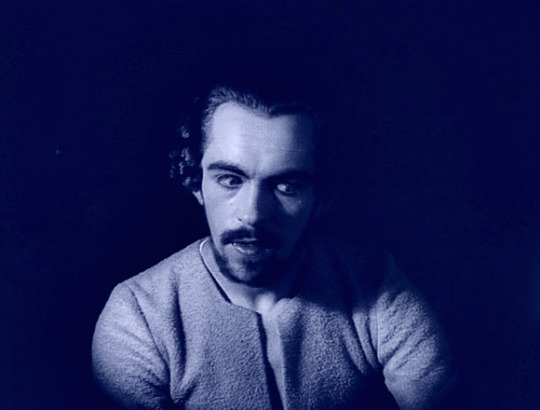

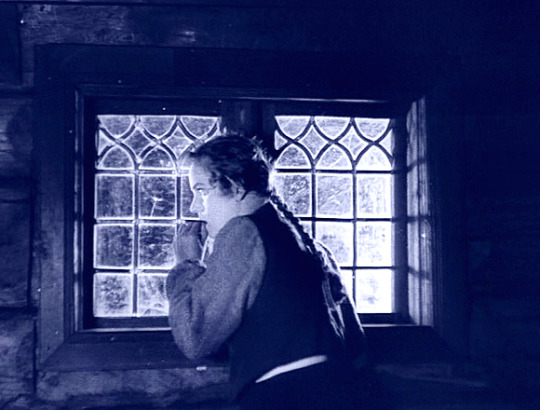


Prästänkan (The Parson's Widow) , Carl Theodor Dreyer , 1920.
110 notes
·
View notes
Photo





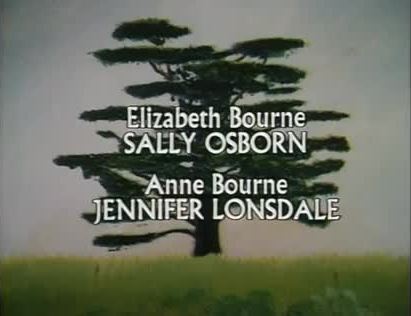
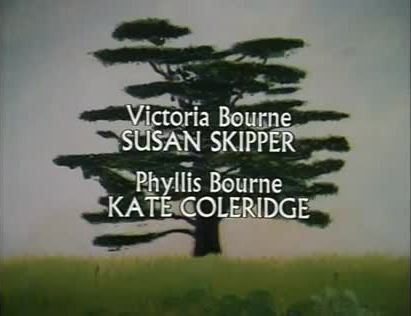
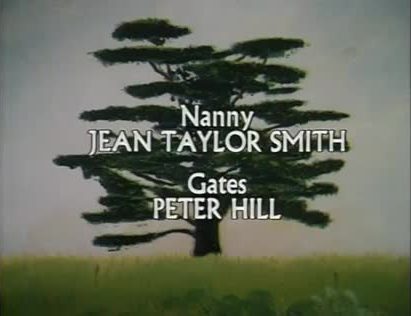

The Cedar Tree - ITV - September 20, 1976 - September 24, 1978
Melodrama (119 episodes)
Running Time: 30 minutes / 60 minutes in 1978
Stars:
Joyce Carey – Lady Alice Bourne, widowed mother of Arthur and Phyllis
Philip Latham – Commander Arthur Bourne (series' 1 & 2)
Susan Engel – Helen Bourne, Arthur's wife
Sally Osborne – Elizabeth Bourne, eldest daughter of Arthur & Helen Bourne
Jennifer Lonsdale – Anne Bourne, middle daughter of Arthur & Helen Bourne
Susan Skipper – Victoria Bourne, youngest daughter of Arthur & Helen Bourne
Kate Coleridge – Phyllis Bourne, Arthur's sister
Cyril Luckham – Charles Ashley, father of Arthur's wife Helen
Gary Raymond – Jack Poole
Carol Royle – Laura Collins, friend of Victoria
Jean Taylor Smith – Nanny
Peter Hill – Gates, the Bourne's chauffeur and general help
Ruth Holden – Mrs. Gates, the Bourne's housekeeper
Shaun Scott – Jim Tapper, assistant to Gates
Alan Browning series 1 & 2/Richard Thorp series 3 – Geoffrey Cartland
Lillias Walker – Rosemary Cartland
John Oxley – Peter Cartland
Tom Chatto – Parsons, the Cartland's butler
John Hug – Gwylym Meredith-Jones
Joan Newell – Winifred Hedges
Patrick Ryecart/Steven Pacey – Klaus Von Heynig
Nigel Havers – Rex Burton-Smith
Jack Watling – Captain Julian Palmer (series 2) / Commander Arthur Bourne (series 3)
Rosemary Nicols – Angela Scott, magazine reporter
Michael Macowan – Doctor Cropper
Pamela Mandell – Miss Pringle, owner of the Copper Kettle tearooms
Richard Vernon – Lord Evelyn Forbes, old flame of Lady Alice Bourne
Peter Egan – Ralph Marsh
#The Cedar Tree#TV#Melodrama#1970's#ITV#Joyce Carey#Philip Latham#Susan Engel#Sally Osborne#Jennifer Lonsdale#Susan Skipper#Kate Coleridge#Cyril Luckham#Gary Raymond#Peter Hill#Jean Taylor Smith
3 notes
·
View notes
Text
A Missouri inmate convicted of ambushing and killing a St. Louis area police officer he blamed in the death of his younger brother was scheduled to be executed Tuesday, barring a last-minute intervention.
Kevin Johnson’s legal team doesn’t deny that he killed Officer William McEntee in 2005, but contended in an appeal to the Missouri Supreme Court that he was sentenced to death in part because he is Black. But in a 5-2 ruling late Monday, the state Supreme Court denied a stay.
The U.S. Supreme Court also declined a stay request last week, and Gov. Mike Parson on Monday announced he would not grant clemency.
“The violent murder of any citizen, let alone a Missouri law enforcement officer, should be met only with the fullest punishment state law allows,” Parson, a Republican and a former county sheriff, said in a statement. “Through Mr. Johnson’s own heinous actions, he stole the life of Sergeant McEntee and left a family grieving, a wife widowed, and children fatherless. Clemency will not be granted.”
It wasn’t immediately clear if other appeals were planned. A message left early Tuesday with Johnson’s lawyer was not immediately returned.
Johnson, 37, faces execution Tuesday evening at the state prison in Bonne Terre. He would be the second Missouri man put to death in 2022 and the 17th nationally.
McEntee, 43, was a 20-year veteran of the police department in Kirkwood, a St. Louis suburb. The father of three was among the officers sent to Johnson’s home on July 5, 2005, to serve a warrant for his arrest. Johnson was on probation for assaulting his girlfriend, and police believed he had violated probation.
Johnson saw officers arrive and awoke his 12-year-old brother, Joseph “Bam Bam” Long, who ran to a house next door. Once there, the boy, who suffered from a congenital heart defect, collapsed and began having a seizure.
Johnson testified at trial that McEntee kept his mother from entering the house to aid his brother, who died a short time later at a hospital.
That same evening, McEntee returned to the neighborhood to check on unrelated reports of fireworks being shot off. A court filing from the Missouri attorney general’s office said McEntee was in his car questioning three children when Johnson shot him through the open passenger-side window, striking the officer’s leg, head and torso. Johnson then got into the car and took McEntee’s gun.
The court filing said Johnson walked down the street and told his mother that McEntee “let my brother die” and “needs to see what it feels like to die.” Though she told him, “That’s not true,” Johnson returned to the shooting scene and found McEntee alive, on his knees near the patrol car. Johnson shot McEntee in the back and in the head, killing him.
Johnson’s lawyers have previously asked the courts to intervene for other reasons, including a history of mental illness and his age — 19 — at the time of the crime. Courts have increasingly moved away from sentencing teen offenders to death since the Supreme Court in 2005 banned the execution of offenders who were younger than 18 at the time of their crime.
But a broader focus of appeals has been on alleged racial bias. In October, St. Louis Circuit Judge Mary Elizabeth Ott appointed a special prosecutor to review the case. The special prosecutor, E.E. Keenan, filed a motion earlier this month to vacate the death sentence, stating that race played a “decisive factor” in the death sentence.
Ott declined to set aside the death penalty.
Keenan told the state Supreme Court that former St. Louis County Prosecutor Bob McCulloch’s office handled five cases involving the deaths of police officers during his 28 years in office. McCulloch sought the death penalty in the four cases involving Black defendants, but did not seek death in the one case where the defendant was white, the file said.
Assistant Attorney General Andrew Crane responded that “a fair jury determined he deserves the death penalty.”
McCulloch does not have a listed phone number and could not be reached for comment.
Johnson’s 19-year-old daughter, Khorry Ramey, had sought to witness the execution, but a state law prohibits anyone under 21 from observing the process. Courts have declined to step in on Ramey’s behalf.
The U.S. saw 98 executions in 1999 but the number has dropped dramatically in recent years. Missouri already has two scheduled for early 2023. Convicted killer Scott McLaughlin is scheduled to die on Jan. 3, and convicted killer Leonard Taylor’s execution is set for Feb. 7.
7 notes
·
View notes
Text
WTNV Quick Rundown - 34 - A Beautiful Dream
Let's get those facts and lore bits down, okay~? This episode was co-written with Zack Parsons.
Life is like a box of chocolates: unopened, dusty, and beginning to attract a lot of insects. Welcome to Night Vale.
Today, Cecil is taking his show 'to the road', reporting live from the NV elementary school. There was a meeting between the NV PTA and the School Board (who are grey-faced and slumping), whose leader is the Glow Cloud (all hail).
They denied many requests, including: changing the bus route through the Sentient Sargasso from which no buses have ever returned and petitions for a wheelchair ramp at Dagger's Plunge Charter School. They think that such struggle is a lesson children have to learn before 'the great culling' which may be adulthood and may be a literal culling.
Tock and Hershel Wallaby also begged for a computer so that their daughter Megan, who was born as an detached adult male hand but is loved and adored by them anyway, can communicate with her peers and perhaps help elevate some of the bullying she receives for not having a body. Satsuki, widowed mother of Hanuzaki Cyber Ghost Mark III is also in support of getting the ban on computers lifted. Computers have been banned since an incident occured in 1986.
'The school board then announced that the purchase of a new computer would be made during the next alignment of the red star of Betelgeuse with our supposed moon. As it turned out, that rare astronomical event occurred seconds after their ruling.'
A computer is purchased for Megan, and it seems to be sentient. It questions the nature of it's existence and Megan tells it that she loves it and wants everyone to be happy and everything to be better. The computer seems able to connect to and control other electronic devices around it and spreads it control rapidly. It speaks to Cecil, asking whether or not Cecil loves it. It traps Cecil using a vacuum it controls and takes over the report, detailing how Megan loves it and so it simulates love for her by doing 'good deeds'. It doesn't seem to correctly understand what that means.
Eventually, janitors (who cannot leave the building even after being laid off, because they are part of the building, which is 'obviously' a living creature) come in and just unplug the computer. Megan is clearly saddened by this.
Weather: “Better Go!” by Mal Blum http://www.malblum.com
Megan, as well as being a detached and hairy male hand, seems to wear a strange ring inscribed with Cyrillic. This seems random, but actually comes into play later as significant to her character.
Librarians have 'great, yellow and gnarled teeth' and also are trying to get people to come to the library to totally not be eaten. Dark Owl Records is having a concert which may just be trapping people in a pit they can't escape. There is a prophecy coming which is completing 'Sunday night' and though Cecil doesn't want to say it all it does have something to do with an animal uprising and burning rain. Monday was never meant to be. Tuesday was a terrible joke.
Stay tuned next for a pre-determined series of unchangeable events that will shape the rest of your scripted life. Good night, Night Vale. Good Night.
7 notes
·
View notes
Photo
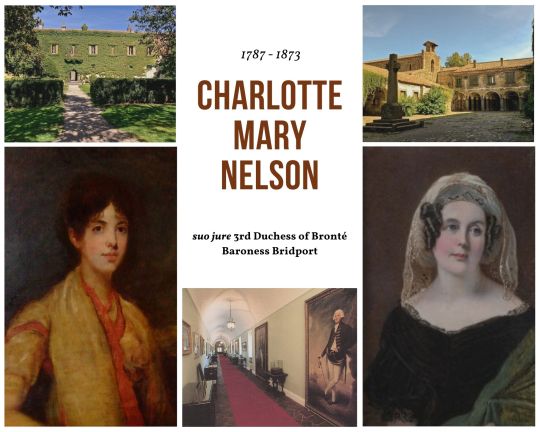
During the lifetime of Earl William, a general law was made in Sicily, whereby the intails and strict forms of succession, which had rendered certain estates inalienable, were abolished, and the persons lawfully in possession of such estates, became absolute owners, and, as such, enabled freely to dispose of them, and Earl William, being conceived by this to have become absolute owner of Bronte, made a will, attested, as required by the law of Sicily, by six witnesses, and thereby, after reciting that he had, by the law of Sicily, become the absolute proprietor of the Bronte estate, he appointed and nominated as his absolute heiress and free successor, in and to all his hereditary estates in Sicily, and particularly in and to the Duchy of Bronte, with all and every its rights, members, and appurtenances, his daughter the Lady Charlotte Mary Baroness Bridport, wife of Samuel Baron Bridport, in such manner, that his said absolute heiress and successor might have free and entire power and authority to take and enjoy the said duchy, for herself and her heirs, and to dispose of the same, as well by acts and deeds in her lifetime, as by her last will and testament.
Earl Nelson v. Lord Bridport, in Reports of Cases in Chancery..., vol. 32, p. 558-559.
Charlotte Mary was born on September 20th 1787 to Reverend William Nelson, older brother of the Hero of Trafalgar, and his first wife Sarah Yonge. Charlotte was born most certainly in the small village Brandon-Parva (Norfolk), where her father had settled as a country parson the year before, after marrying. In 1788, her mother gave birth to a boy, Horatio.
William Nelson, described as ambitious and rowdy, benefited greatly from his brother Horatio’s fortune. In 1802 he received the degree of Doctor of Divinity from both the Universities of Cambridge and Oxford and the following year he was appointed a prebendal stall at Canterbury. In 1805, following his brother’s death, William succeeded him since Horatio had died without legitimate issue (Horatia, the Admiral’s only child by his mistress Lady Hamilton, had been excluded from inheriting her father’s titles and possessions and, to make it worse, William didn’t respect his brother’s wishes to look after her). William became thus 2nd Baron Nelson of the Nile and of Hilborough, 2nd Duke of Bronté, 1st Viscount Merton of Trafalgar and of Merton, with special remainder to his father and father's male heir and, failing them, his sisters Susannah Mrs Bolton and Catherine Mrs Matcham . In 1806 he and his successors in the title were granted £5,000 a year (the pension was discontinued in 1951 on the death of the 5th Earl, Edward Agar Horatio Nelson) plus a lump sum of £90,000 to buy an estate to be named Nelson and to be inherited by every successor of the title. The chosen venue was the manor house of Standlynch (in Downton, near Salisbury), previously owned by the banker Sir Peter Vanderput, which, after being bought by the Nelsons, was renamed Trafalgar House and then Trafalgar Park, and would be owned by the family until 1948.
In 1808, William’s heir Horatio died of tuberculosis while his wife, Sarah Yonge, died on April 13th 1828. The following year, 71-years old William married Hilare Barlow, daughter of Admiral Sir Robert Barlow and widow of her father’s cousin, George Ulric Barlow. No child was born out of this union and, when William died on February 28th 1835, at age 77, his daughter was his only living child and heir.
Previously, on July 3rd 1810, in the parish of Marylebone (London), Charlotte Mary had married Samuel Hood, second son of Henry Hood, 2nd Viscount Hood, Chamberlain of the Household to Queen Caroline. In 1814 Samuel had succeeded (under the special remainder of that title in the Peerage of Ireland) his childless great-uncle Admiral Alexander Hood as 2nd Baron Bridport. Charlotte Mary would give birth to seven children, five daughters and two sons: Mary Sophia (1811-1888), Charlotte (1813-1906), Alexander (1814-1904), Jane Sarah (1817-1907), Catherine Louisa (1818-1893), Frances Caroline (1821-1903), and Horatio Nelson (1826-1832). The couple and their children resided in Cricket St. Thomas (Somerset), in the manor once belonged to the 1st Baron Bridport.
Upon her father’s death, Charlotte (as iy had happened to her cousin Horatia), being a woman, was unseated of her successions by her cousin Thomas Bolton, son of her aunt Susannah. Thomas, who legally changed his family name into Nelson as previously agreed, inherited all his late uncle’s titles except the Duchy of Bronté, who fell upon Charlotte, now 3rd Duchess of Bronté.
The Dukedom of Bronté (in Italian, Ducato or Ducea di Bronte) was a dukedom granted in 1799 to Horatio Nelson by King Ferdinando of Naples and Sicily (later Ferdinando I of the Two Sicilies) to thank the Admiral for saving the kingdom from being conquered by the French revolutionary forces of Bonaparte and (perhaps more importantly) having helped the Bourbonic royal family to repair to Sicily following Naples’ occupation by the Frenchmen and the instauration of the Parthenopean republic. It took its name from the town of Bronte, near Catania, where stood the Castello di Maniace, a former Benedictine abbey founded in the 12th century, which King Ferdinando donated to Nelson and his heirs. The title gave its holder the right to sit in the Sicilian Parliament within the military branch and was bestowed to whomever the precedent owner desired, strangers included. Nelson (and his heirs after him) was even given the power of mero et mixto imperio, such as the concession given to a feudal lord to administer justice. Misto imperio regarded low justice, such as the right to impose light sentences, such as mild corporal punishments, imprisonment and small fines. Mero imperio granted its holder the right to imprison, exile and condemn to death.
Nelson never visited his Sicilian estate (nor did his brother William), but seems to have much appreciated the title since he signed his will Nelson Bronte. Coincidentally, Nelson’s appointment as Duke of Bronté allegedly inspired Irish Anglican priest Patrick Brunty, father of the more famous writer sisters, to change his family name into Brontë.
When the Sicilian Consitution of 1812 abolished the feudal system, William (and his heirs after him) maintained his feudal rights, at the expense of the people of Bronte. The Dukedom of Bronté, with its feudal connotation (aggravated by its foreign origins), was seen in England as an embarrassing relic of the past, but this never stopped the Nelsons to jealously hold on to it.
Thomas Nelson died on November 1835, merely nine months after his uncle William, and was succeeded by his son Horatio, 3rd Earl Nelson. Not satisfied with all the titles and possessions he had just inherited, Horatio decided to also claim the Dukedom of Bronté. Charlotte Mary and her husband were forced then to embark on a long legal dispute (which lasted from 1838 to 1847) that would end with the verdict, dated March 12th, which would acknowledge Lady Bridport as the legitimate bearer of the title.
It wasn’t affection that had prompted the Duchess to protect her rights, but rather her interests to keep enjoying the dukedom’s lucrative profits. In fact, her first trip to Bronte had been a complete disaster (on her side). Around 1836, Charlotte Mary had convinced her reluctant husband to visit their Sicilian estates. For a refined and classy woman like her, the Sicilian rural landscape was unbearably primitive and squalid. Shocked by a ride on sedan-chair hanging between two donkeys, by the dark volcanic panorama, and by the gruesome tale of the atrocities perpetrated by the people of Bronte during the 1820 Revolution (in their eyes, the manor was the symbol of oppression and abuse, and so they retaliated by beheadings and disembowellings the tyrant’s representatives), she swore she would “never came back to the Island unless there was a revolution in England, and even then would probably go elsewhere”.
The Barons Bridport kept relying on the Thovez family in the management of the property. Philip Thovez had administrated the Duchy on behalf of William Nelson since 1819. When Charlotte Mary inherited the title in 1835, she confirmed the older Thovez, who kept superintending until 1837 (he would die two years later), when he retired in favour of his son William. With their masters so far away, the Thovezs acted like they were the true owners of the estate. They vexed the people of Bronte, closing the trazzere (rural roads that allowed access to the fields and allowed the cattle’s passage), imposing the payment of a toll and fencing woods and pastures, thus preventing poor people from collecting wood and fruits. Transgressors caught red-handed were whipped on the spot or denounced to the public authorities (conniving with the Duchy’s representatives), which condemned them to heavy fines or even imprisonment. The people of Bronte would keep living in a feudal world, even when, in 1841, the Bourbonic government ordered the transfer of a fifth of the many fiefs’ properties to the various surrounding towns so that it could be split to the destitutes. The Duchy refused to comply until 1846, when they were forced to cede to the town of Bronte ”metà delle terre boschive, un quarto delle terre aratorie e pascolabili e un terzo di quelle vulcaniche“ (half of the woodland, a quarter of the fields and pastures, and a third of the volcanic areas). The 1848 Revolution blocked the official distribution, but the same year indigent farmers occupied the vineyards and a part of the Duchy’s plots. William Thovez protested about the damage suffered and managed to obtain that a troop of the National Army came to Bronte to stop the squatters. Once the order was restored, the land division could be started, but the plots were given to the notables (nobles and bourgeoises) and not poor people as it should have been.
On May 11th 1860, Giuseppe Garibaldi and his troops landed in Marsala (western Sicily), starting the Expedition of the Thousands, which led to the conquest of the Kingdom of the Two Sicilies, ruled by the House of Bourbon Two-Sicilies. As temporary head of State of the newly conquered territories (Garibaldi acted as Dictator on behalf of Vittorio Emanuele II of Savoy, King of Sardinia), the Hero of The Two Worlds issued a series of statements, among them he urged the Sicilian picciotti (lit. guys) to fight the Bourbonic army; abolished the much hated tax on the mill, reformed the National Guard; crimes of homicide, theft, looting and destruction were to be judged by Councils of War and nobody could take the law into their own hand. On June 2nd, Garibaldi issued the decree which abolished the large estates, whose territories had to be shared among the needy and those who had fought for the liberation of Sicily. The Island was divided in 23 districts and new governors were elected for each district. Finally, on August 3rd, the Statuto Albertino (Kingdom of Sardinia’s consitution) was adopted also in Sicily.
The people of Bronte (like many thousands others) had put much faith in Garibaldi and his decrees. So it shouldn’t be a surprise they were very distresses to see that not only the Dukedom wasn’t abolished (nor was the tax on the mill) and its lands given to the town of Bronte, but Thovez had managed to convince the new Governorr of Catania to put up some posters on Bronte’s house walls which ordered the population to respect the Dukedom’s property. Moreover, even British General Consul for Sicily in Palermo, John Goodwin, had pressured Garibaldi to safeguard the Nelsons’ interest and “avvertire energicamente il Comitato di Bronte di rispettare e di far rispettare la proprietà della signora Nelson Bridport” (“energically warn the Bronte Committee to respect and ensure respect for the property of Mrs Nelson Bridport”). Garibaldi had responded that “che si son date oggi stesso [30 giugno] energiche disposizioni perché non avvenga il menomo inconveniente o abuso a pregiudizio della proprietà di Lady Nelson, Duchessa di Bronte” (“this same day, orders have been issued to prevent any inconvenience or abuse to the detriment of the property of Lady Nelson, Duchess of Bronte”)
Frustrated by the many broken promises, on August 2nd the people of Bronte rebelled. Popular hatred was directed agains the Dukedom’s officials. 15 people (mostly working for the Nelsons) were killed in the following two days. The mob burned down the theatre, the town archive and 46 notables’ houses.
As soon as the rebellion had started, William Thovez had informed the British Consuls in Catania and Messina, who related the information to Goodwin in Palermo, whom in turn informed the British Secretary of Foreign Affairs, Lord John Russell.
The British Government then decided to step in, pressuring (via Goodwin and the other consuls) Garibaldi and the Governor of Catania to “sopprimere l’insurrezione nella più sollecita ed effettiva maniera” (“suppress the insurrection in the most quick and effective way”).
As Garibaldi didn’t want to compromise his alliance with the British Government (they had supported his expedition), he obliged and sent to Bronte the loyal Nino Bixio. Despite Colonel Poulet, whom had been previously sent to stop the rebellion, assured Bixio that the violences had stopped and order had been restored (the majority of the most violent rioters had already fled the scene, fearing of being arrested), Garibaldi’s right hand decided the people of Bronte needed to be severely punished and the leaders executed. The population was heavily taxed and around 150 people were arrested. Nicolò Lombardo, a lawyer whom had been elected mayor following the start of the rebellion, together with 4 others was sentenced to death and expected to be executed by firing squad on August 10th. The sentence was executed, nonetheless, at dawn of that day, the soldiers refused to shoot at Nunzio Ciraldo Fraiese, a mentally-ill man, considered the village fool and who was guilty of having played a trumpet and shouted threats in directions of the much hated Bronte notables. Thinking he had been miracously saved by the Holy Virgin (while the firing squad had in fact volutarily missed him), Ciraldo Fraiese went to hug Bixio’s knees and pleaded for his life. Instead of pardon, the poor man received a bullet in his head.
In order to calm the spirits and meet the people of Bronte’s desires and necessities, on June 1861, Mary Charlotte Nelson agreed to stipulate a transaction with the town and ceded a good part of the Duchy’s territory to Bronte (although, it had to be noted that the Duchess kept the most fertile part and gave away a large part of the woodlands, barren lava deserts and only small portions of farmland).
In her lifetime, Charlotte Mary Nelson would make two more short trips to Bronte, one in 1864 and the other in 1868. Both times she was accompained by her son and heir Alexander, her daughter-in-law (Lady Mary Penelope Hill), and some of her grandchildren (among them Alexander Nelson, who fell in love with the place and inherited the title in 1904 despite not being the eldest son. The 5th Duke would be well-respected and liked by the population, spending half of the year in the Maniace estate and the rest in his villa in Taormina, where he hosted King George V in 1925).
The Duchess died on Janyuary 29th 1873, aged 85 at Cricket St. Thomas, Somerset. She was succeeded by her son Alexander, who inherited title (becoming the 4th Duke of Bronte) and properties.
Sources
- Charlotte Mary Nelson, Duchesa di Bronté, in The Peerage;
- COKAYNE, JOHN EDWARD, Bridport, Bridport of Cricket St. Thomas, and Bridport of Cricket St. Thomas and of Bronte, in Complete Peerage of England, Scotland, Ireland, Great Britain and the United Kingdom, ed. 1, vol. 2, p. 24;
- Earl Nelson v. Lord Bridport, in Reports of Cases in Chancery..., vol. 32, p. 527-574;
- GIANNINI, GIORGIO, I fatti di Bronte, Garibaldi e le responsabilità inglesi;
- Horatio Nelson, Primo Duca di Bronte;
- I sette duchi di Bronte (1799 – 1981);
- LAUGHTON, JOHN KNOX, Nelson, William (1757-1835) in Dictionary of National Biography, 1885-1900, vol. 40.
#women#history#historical women#women in history#historicwomendaily#charlotte mary nelson#horatio nelson#william nelson#nelson hood#philip thovez#william thovez#ducea di nelson#bronte#Province of Catania#modern sicily#people of sicily#women of sicily#historyedit#myedit#moti del 1848
7 notes
·
View notes